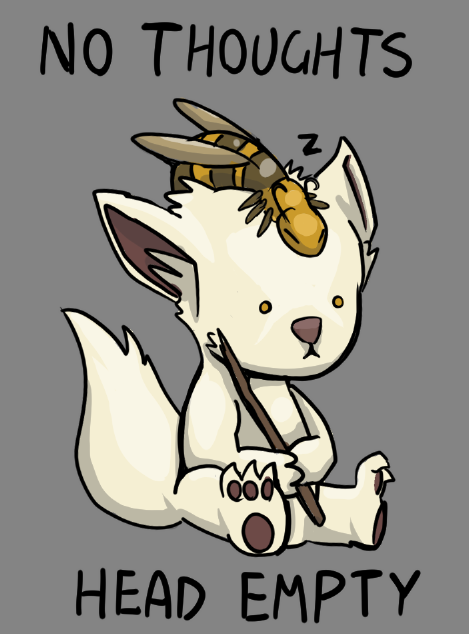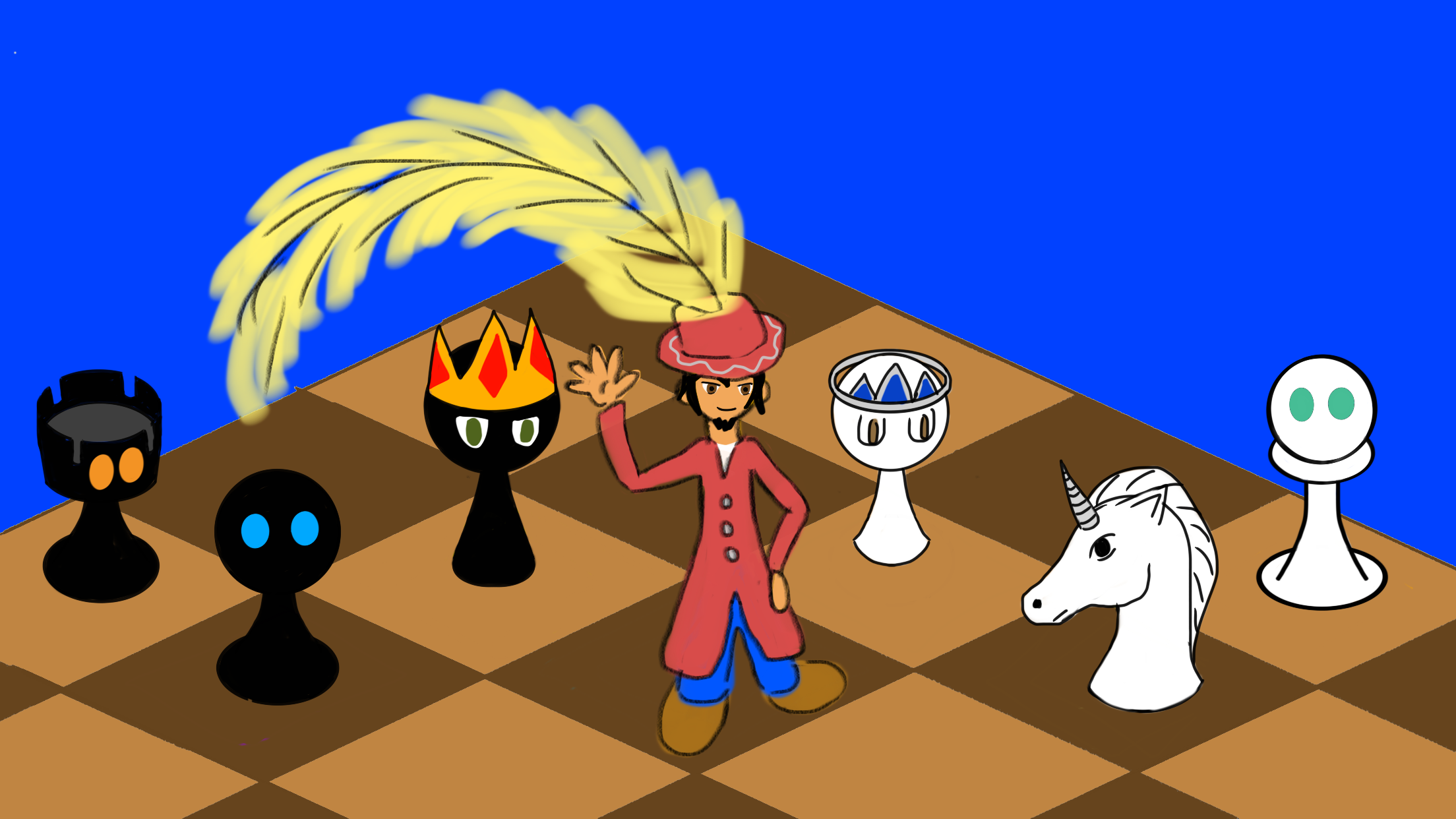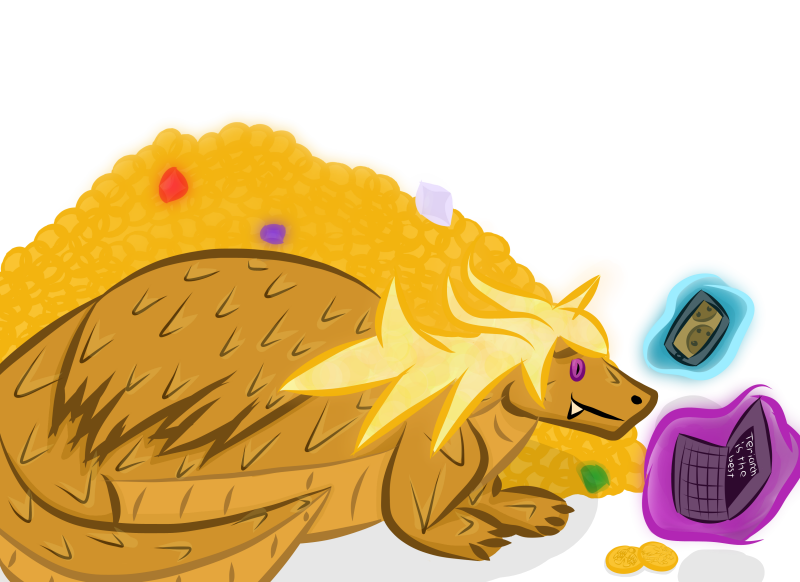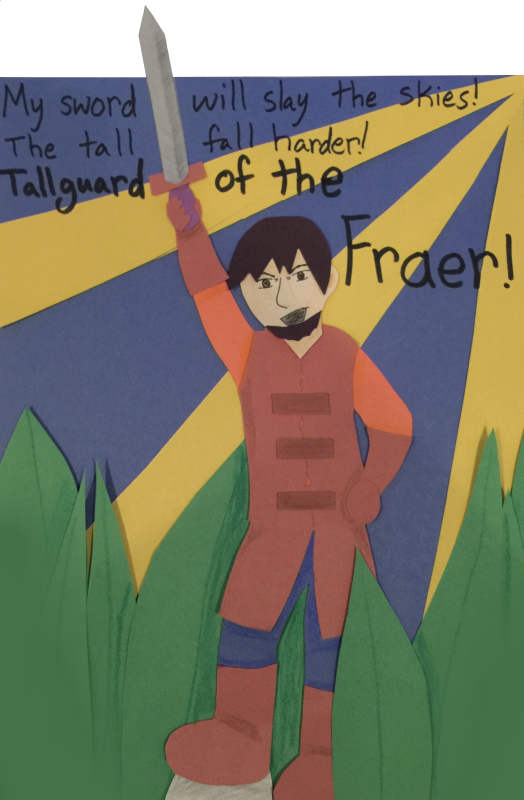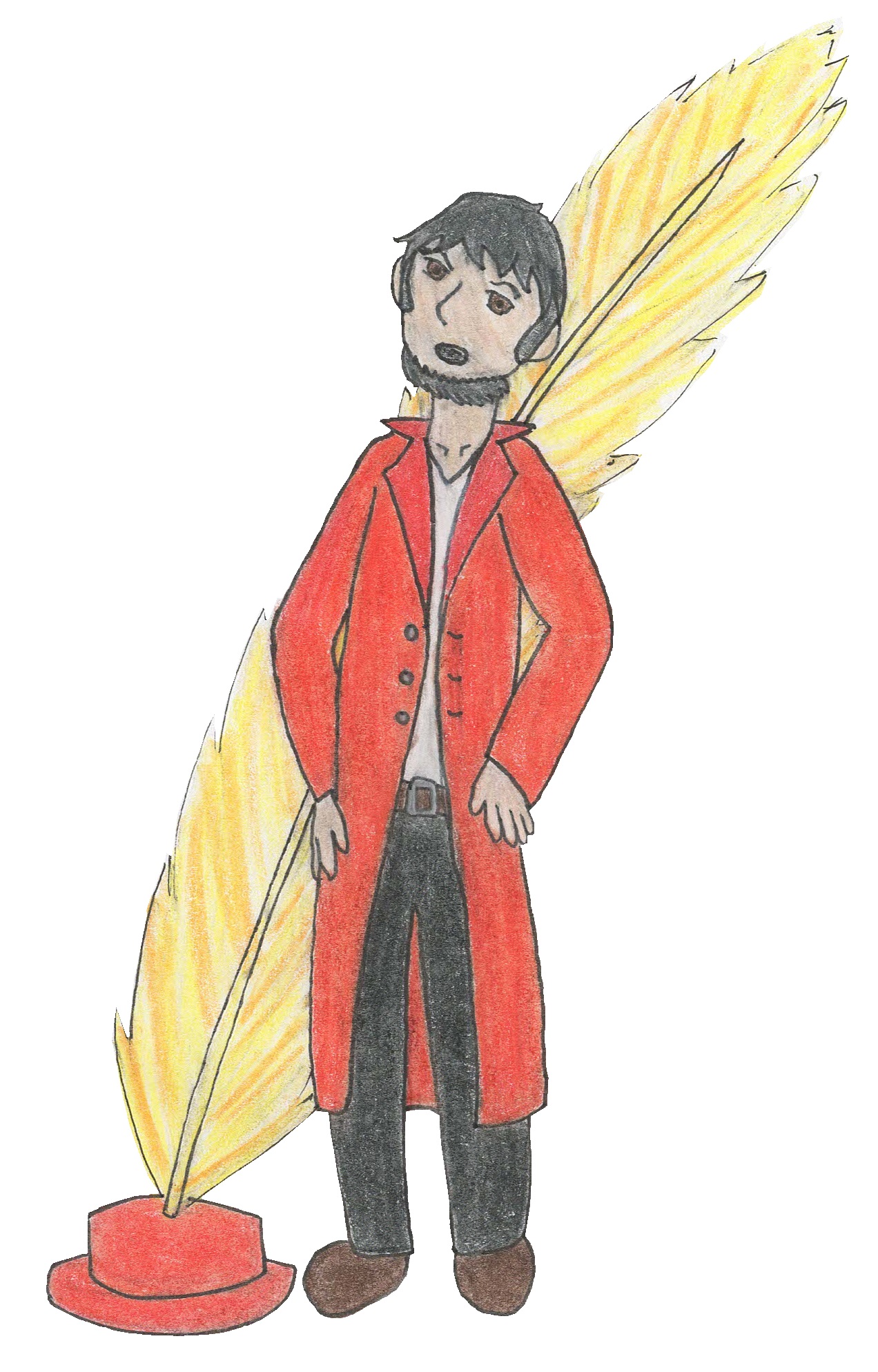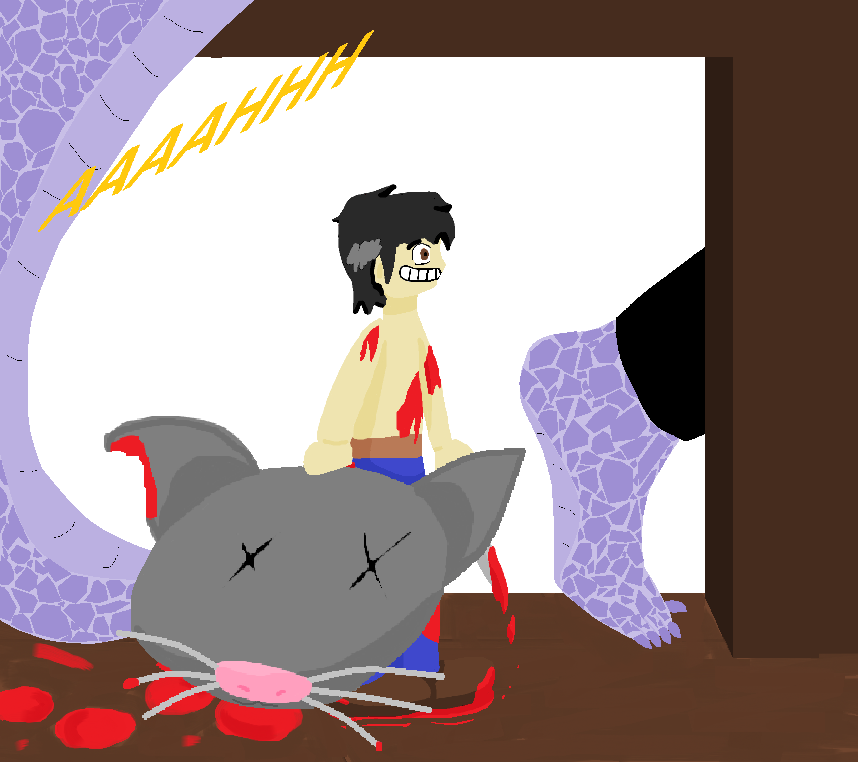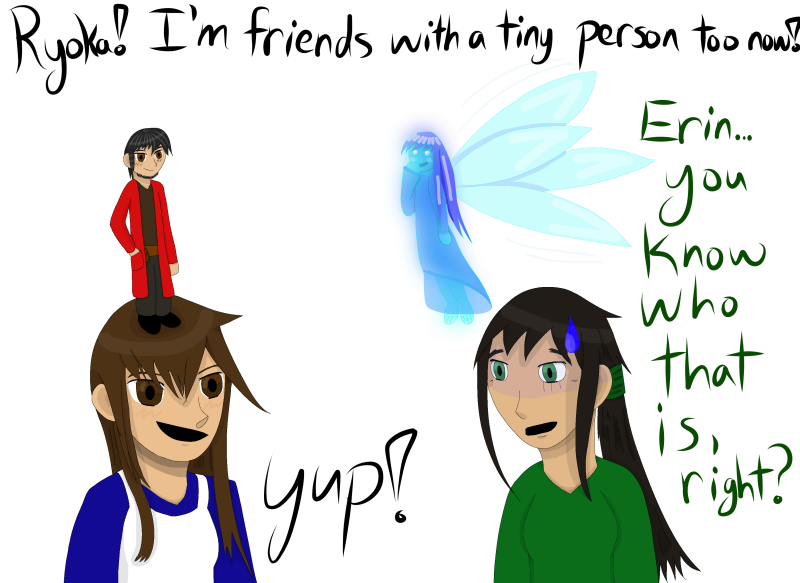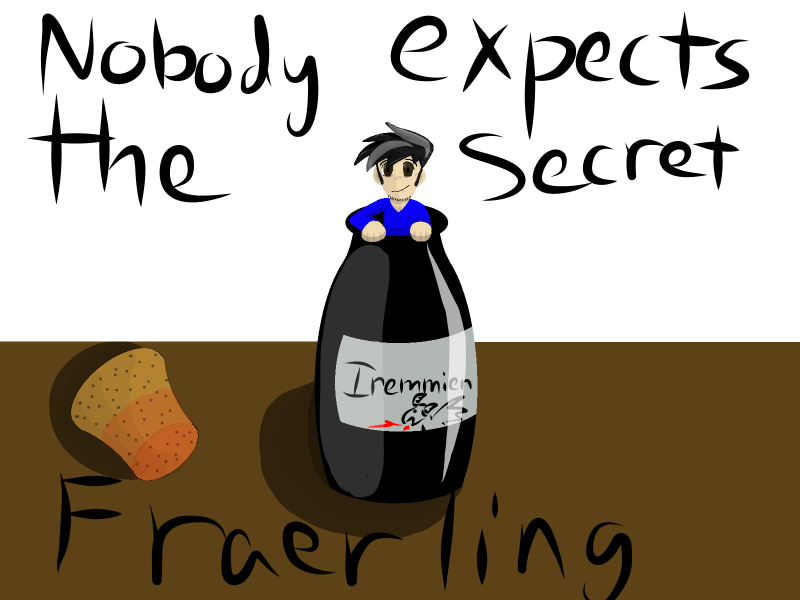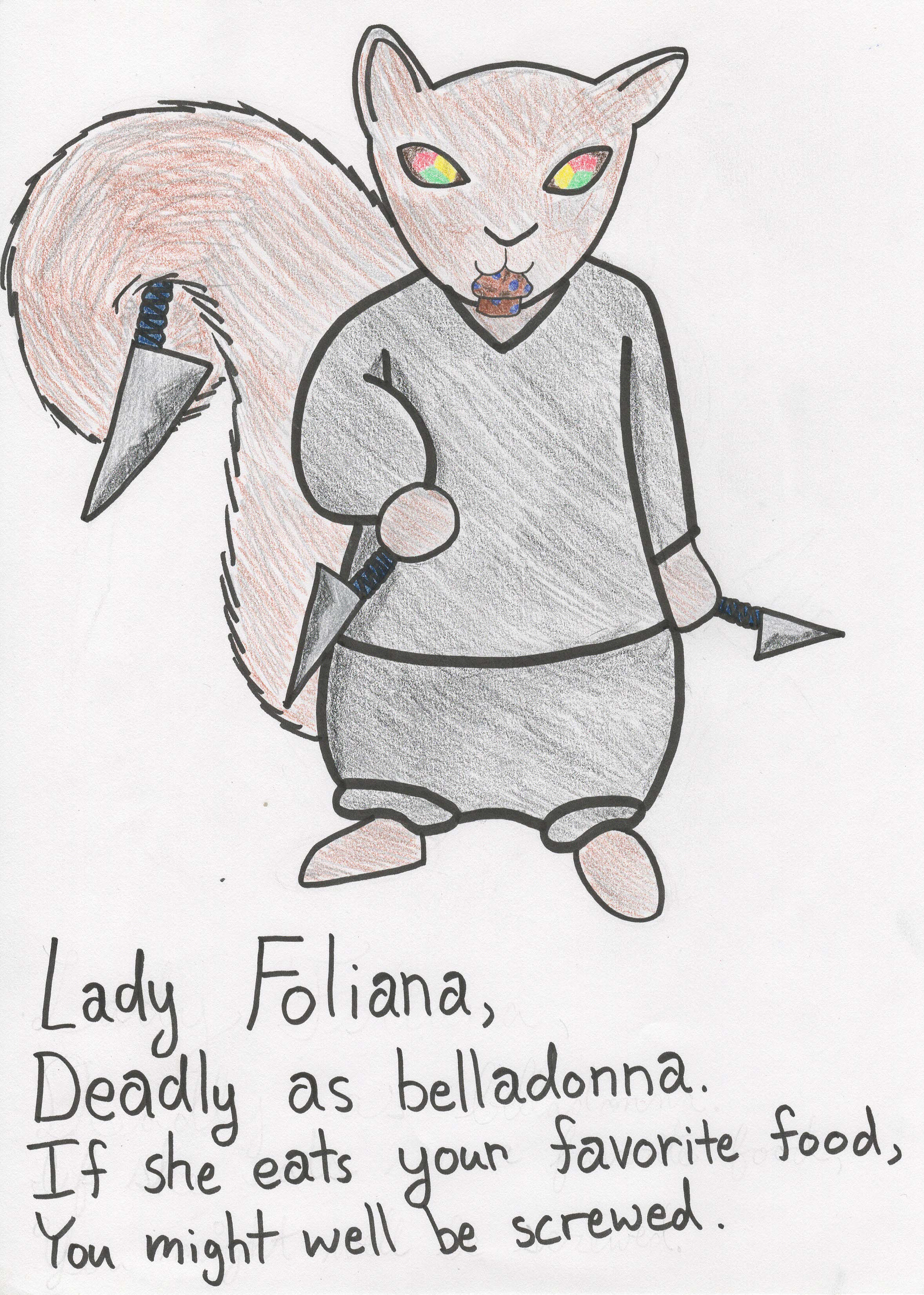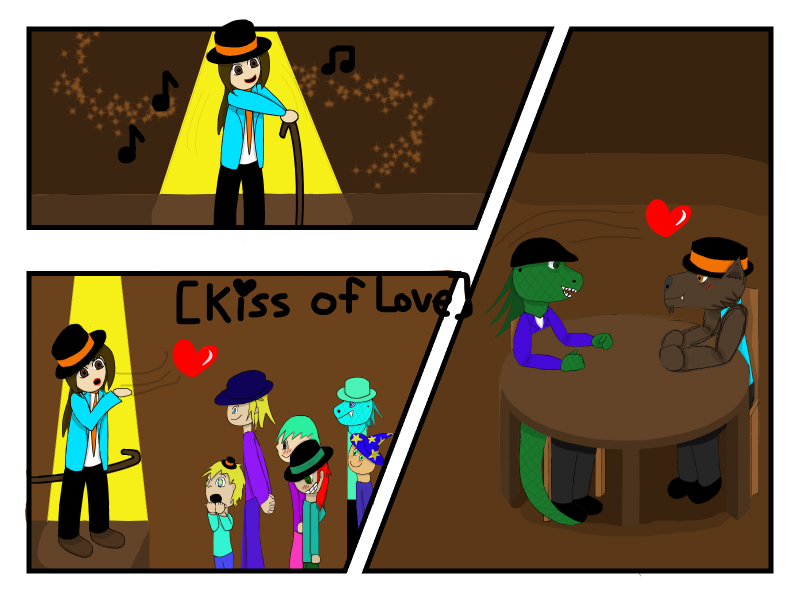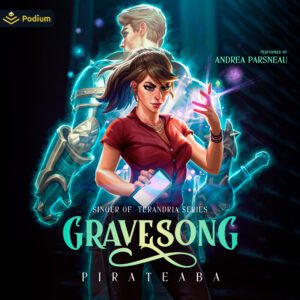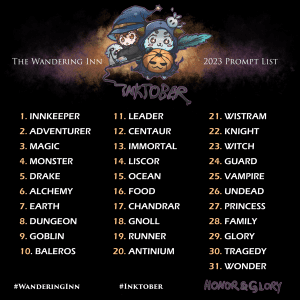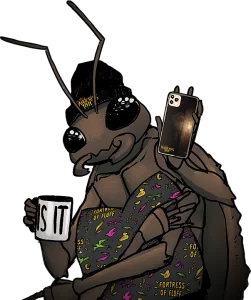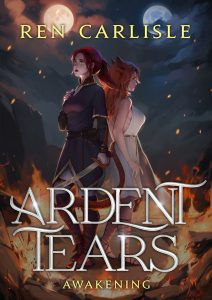Paradise on earth. Utopia. Few existed on earth. Fewer still in the air or under sea.
Also, paradise for whom was the question. If you meant ‘some people’, you could call some nations ‘paradises’ for the elite. For all was harder. And even then, the word generally only meant a place where people were free from disease, monster attacks, war, or banditry.
That was already beyond the Walled Cities, the ken of the Great Companies of Baleros, and the Kingdoms of Terandria by and large. They had 90% success rates, 99% success stories—but they always had loosely-held borders, slums, places where neglect led to suffering.
True utopias where such things were truly once-in-a-year occurrences or only occurred during total catastrophe? So few. And they tended to become targets because of how nice such places were. And if such nations guarded their borders, they tended to become military aggressors and so…
For a hundred points, add the following qualities: a stable utopia of at least four decades, where plague, monster attacks, and war did not trouble its civilians. For two hundred points: no starvation, free education and/or employment, access to medicine, and housing. Options also included higher-grade magical luxuries, an abundance of artistic or creative outlets, and reclining sofas.
That was a hard standard to meet. And a few utopias did qualify. There was Khelt, the undead kingdom of Chandrar, the Kingdom of Keys in Terandria, the Archmage’s Isle of Heiste…
But that was a list. To really break down what made each nation special, one had to know what each utopia had to offer. And what each lacked.
“It is, of course, impossible to compare the Archmage’s Isle of Heiste to Khelt. It is Izril’s only settlement qualifying of the title of ‘utopia’. Truly, it may be called such because it was built—a sensible decision by one of the Archmages of Wistram. She had the foresight to sequester and then construct her private paradise, which, upon her death, became the Archmage’s Isle. An abundance of plant life, carefully selected to provide fruits and nourishment from around the world as well as floral blooms of surpassing beauty. The isle itself has sumptuous housing, magical enchantments that protect and provide; indeed, magical familiars, Golems, and other servants. A utopia, I shall admit. But one with a flaw.”
The voice was precise, although it had a faint echo. Well-spoken, commanding, and slightly sneering. It waited for a response. After a second, someone replied.
“…What’s the flaw?”
“The Archmage’s Isle can barely provide for two thousand residents. And they would consider that crowded. There is no way to expand said isle either, since the [Archmage] who created it lies dead. Thus, the isle is fragile against overpopulation, such that they must routinely cull their numbers. Well, that is a necessity, but it is also highly endangered by invasive creatures who would consume the entire isle. Let alone Crelers; tunneling beetles nearly laid the utopia low.”
“Mhm. Beetles. Sounds nice to live in, though.”
“One may assume so. However, society within utopias matters. Consider the House of Minos. Another utopia, insofar that its citizens are without the most common of troubles. Even so—their society prides itself on the ephemeral qualities of honor and a warrior’s tradition. It must rely on volunteers to staff its navy and army to keep itself safe, and whilst I would laud the King of Minotaurs her nation more than Heiste—it too suffers the flaw of society.”
“The King of Minotaurs is female?”
A sigh. Or a sound like a sigh.
“Yes. The title is…as for the Kingdom of Keys, I would say the paranoia of its citizenry—not to mention the unique culture—interferes with its qualification as a utopia. Are you familiar with the Kingdom of Keys, Samal? Of course you aren’t.”
“Nope. What’s it like?”
The speaker was a [King]. Or rather…a King. Also, undead. He was named Fetohep of Khelt and his eyes flashed golden in their hollowed sockets as he reclined on his throne and spoke. On the nature of utopias, he was an expert.
“Doors upon doors. Each part of the kingdom, a passageway into the next. The outer…layer of the kingdom itself is a gateway that must be entered. Yet entire fields and farmlands lay beyond. An enemy must first bypass the gateway by force of arms—or keys of their own. Thus, safeguarded, Samal creates inner gateways. And its citizenry has taken that to an extreme. They lock everything with the same keys, obsess over what is theirs. To be great in Samal is to have a key to every lock. To be poor is to have a key only to the fewest things.”
“Makes sense. Is it nice to live in?”
“I would place it below the Silent Dome of Baleros—which is a maintained utopia for their honored elite. As I stated earlier, a utopia that caters only to a few could include even Roshal. But true paradise is far more challenging. It is simple enough to make one man live like a [King]. To make all live like [Lords] is far harder. And yet, I declare Khelt to maintain such a place. True, if I must list my nation’s flaws, it is our reliance upon water and the labor of the undead. Neither of which is a crucial weakness, but flaw exists. However, compared to other nations which must train and maintain armies…”
“Mhm.”
The undead ruler, Fetohep, paused. The reply was…well, the absent sound of someone who was clearly doing something else and making a ‘I’m listening’ noise.
It was not something he, Fetohep, ruler of Khelt for over six hundred years, was used to hearing. He balefully eyed the glowing crystal, hovering next to his throne, surrounded by a suspended, faintly-inscribed ring of oscillating gold.
A more permanent version of a speaking stone, which could be tuned to receptors at great distances. This one was currently tuned to Esthelm, Izril. And a young man was holding it against his ear as he fiddled with some mechanical parts.
“…Are you listening to me, Kevin of Liscor?”
“Er—absolutely, your Majesty!”
There was a hurried shuffling sound, as of someone sitting more fully upright and guiltily putting something down. Fetohep paused pointedly.
“My words are not so light as to be put after other, mundane activities, are they?”
“No, sire. Not at all…er…”
“Er, what?”
A pause, and the sound of someone scratching their head. At last, Kevin came out with it.
“Not to insult your Wise Majesty—but it’s just that, um…”
Fetohep waited, nodding at the proper address. The young man did vary it each time, which Fetohep appreciated. After a second, Kevin just came out with it.
“I’d hate to offend your Majesty. It’s just that, well, I’ve been learning of utopias and their qualifications for um, the last six hours, King Fetohep. And I uh—have work to do. Not that I can’t make time for our best client! But I…”
Another moment.
“…I have to pee.”
“Ah.”
The undead ruler thought about this. Then he imperceptibly moved his head and checked the ceiling. He noted the Skyceiling was displaying a markedly different time than when he had first called Kevin. The ceiling could, at will, reflect the open sky above. It had been about midnight when he had decided to educate Kevin on Khelt’s greatness. Now it was dawning.
Six hours of nonstop illumination on Khelt and utopias. Kevin would not normally have been so indecorous, but stopping Fetohep was like trying to stop a sandstorm. He would have to make a salient point and to interrupt him was to offend.
“I forget mortal qualms. Very well, Kevin of Liscor. Go perform such…bodily functions. Then, we shall discuss what you believe is a utopia.”
“Er—very good your Majesty. Only—”
Kevin wanted to sleep. And eat food. And not do that. He looked around—then Fetohep heard a crash.
“Oh no! I think it might be a monster attack. Someone’s calling the alarm! I have to—I’ll have to—”
“A monster attack?”
Fetohep’s voice reflected extreme skepticism. He did not hear the warning horns or bells—just a crash as something was hurled against a wall. He was about to point that out when the speaking stone went dead.
The King stared at the floating communications device. The flames in his eyes narrowed to pinpoints. Visible fury passed over him—
Then was gone. Emotion did not rule Fetohep. But he was…peeved at the obvious slight. He indulged in the rare emotion for a second.
Then—he had second thoughts. If there was one thing an undead being of centuries was good at, it was introspection. Moreover, Fetohep had not had the Skills in life, but he had learned what some [Mages], [Strategists], and other great thinkers like [Secretaries] had mastered.
True introspection. First he was angry. Then he questioned why he was angry. He questioned if he, Fetohep, was wrong. He tried to take the mortal position and found himself wanting.
“Six hours is long by mortal spans. Moreover, young men rush about. He has a business of his own to run. Perhaps I interposed my will overlong to provoke such desperation. He is not a fool.”
The ruler of Khelt nodded to himself, already processing the event coolly. After a second his glowing eyes burned a bit brighter as something else occurred to him.
“Midnight is also not an appropriate time to be awake for many. Ah.”
How he forgot such things. Fetohep smiled—or he would have smiled if he bothered to make facial expressions—or he would have smiled if his dead flesh were capable of such intricate muscular motions—as he recalled one such memory.
He had once inadvertently killed fifteen diplomats in his first century of reign by inviting them to gaze upon the wonders of Khelt. Which had included some rooms that were quite without air. He had demanded to know why they would not stand in his presence right before they expired for lack of oxygen.
The memory was amusing in hindsight, even if he had been mortified at the time. Fetohep wanted to recall it to…he looked at the speaking stone and his eyes flickered.
Ah. It was dead. And the person he truly wanted to talk to—either of them, really, but one in particular—was not here.
Something strange. Fetohep of Khelt did not move from his throne, where he had sat for three days. Straight. Without getting up to pee, without so much as budging an inch. He didn’t scratch himself, he didn’t twitch, or even breathe—he had been as still as a statue.
For three days.
Oh, he spoke. He had been speaking quite a lot, really. And that was…odd.
Yes, very odd. Why did he want Trey Atwood, or his sister, to be sitting there, perhaps on the floor, perhaps in the dining room where he would sit upon a throne there too and tell them about the inadvertent story of the dead diplomats—and then the numerous times he had intentionally killed them?
“Strange.”
Fetohep mused, because his mind was reminding him of some truths. He did not divide his consciousness up into parallel selves like the [Mages] did—but he had mastered the art of smart [Witches]. Introspectiveness. And he recalled—
He had not always been like this. In fact, a year ago? This was what his days would have been like.
Sit here, unmoving, silently maintaining and arranging the undead legions of Khelt. Sit and think. Or sit and be still, and let time pass like water unto sand.
He had passed entire weeks like that. Fetohep had once sat for five months without moving, without speaking, until he was roused to investigate a murder of passion that had taken place.
He recalled it quite clearly. And even if he seldom got close to his five-month record, he would still sit for hours or days unending without needing to so much as speak.
His servants came and went. They cleaned the palace, but they did not interrupt him except when he was needed. And that was surprisingly seldom.
Khelt had set up its society such that its ruler only needed to maintain and change what they willed. Fetohep was more preoccupied with border matters, trade, than he was with his people.
And frankly, it was fine. For Khelt…was a utopia. And its king had been content with his paradise in the sands because his people wanted for nothing. He had spent six centuries thusly, participating in some wars, defending his nation a few times, but really…making sure everything ran the way it had.
Only—now—something was wrong. The King sat there for sixteen minutes and forty three seconds and he was aware of sitting there. And a new thought emerged. One that had not troubled him since his death, but as a mortal man he had sometimes known.
Sands take me, I’m bored.
Fetohep looked around. His head moved; then he spoke.
“Pomle.”
The speaking artifact floated away and another appeared in its place. A large scrying mirror, perfect, highly-enchanted—Fetohep gazed into it.
“Are there any Sparring Events today?”
He was referring to the new practice in Pomle; fighting arenas where one could bet on two fighters—or even groups—who would battle until one or the other was defeated.
A new concept. However, not original. Gladiator arenas had existed long before even Khelt. In fact, Nerrhavia was beginning to broadcast its own gladiatorial matches, in its great arenas. Other nations were doing the same—even Illivere was going to broadcast Golem Testings, which Fetohep was very interested in.
As he peered at the empty arena and realized…it was dawn…Fetohep was already summoning the [Messages] of the scheduled Sparring Events to his mind.
Let’s see. Level 42 [Martial Artist] –specific class unknown—versus eight Level 20+ [Martial Artists]! Two Level 30+ among the eight. Oh, now that did sound interesting!
He reviewed the details. Hm. Even more fascinating. It listed ‘Dullahan’ as species for the Level 42 [Martial Artist], and gave a gender. Male. And since it was eight Level 20’s—well, the odds were still in the higher-level’s favor, but not by much.
Fetohep’s keen mind and undead memory presented him with options of who this could be. Even in Pomle, such a level was rare. Male, Dullahan…he was put in mind of the [Armored Fist] class of martial arts, who prized extreme resilience.
And if that were so, few Level 20 [Martial Artists] could take down someone twice their level, even with such numerical advantages. Now, a Garuda might be in trouble, but this?
Fetohep summoned another artifact; a Scroll of [Messages]. He spoke, and a quill wrote on the message, auto-transcribing his words.
“Fetohep of Khelt wagers a sum of eight thousand, six hundred gold pieces on the Level 42 [Martial Artist].”
The [Message] was transcribed, the bet laid in. Fetohep experienced some satisfaction as the odds instantly adjusted as the [Bookkeepers] taking bets on the event took note of his wager.
He had helped fund Pomle’s matches. And he had cultivated a reputation for making the correct wager. Fetohep had a 68% success rate, which actually peeved him; he’d had a losing streak this last week.
He didn’t bet much. And he had, in fact, increased Khelt’s treasury, albeit by small amounts.
It was just a hobby. But it was odd that it was his hobby. He hadn’t needed one.
Nor did Fetohep spend long on the match. He would watch it of course, and that would happily fill oh, maybe thirty minutes? But it would be hours later, alas.
“Wistram News Network.”
The scrying mirror flickered to life. Fetohep saw a Drake speaking and sipping a cup of tea.
“—just waking up, I’m Noass, bringing you today’s news. The King of Destruction’s war with multiple Chandrian nations rages on with a development in battle; Mars the Illusionist’s forces were pushed back after intense fighting between—”
“Next. Wistram Music.”
A new channel appeared. Fetohep heard a quartet of violins playing. He listened for a minute as the Dullahan musicians played. Was this a recording? He tapped a finger on his armrest to the beat. Then sighed.
He’d heard this song before. A Dullahan classic. The king’s voice had more irritation in it now.
“Wistram News Network.”
“—war in Ailendamus on the other hand has seen—”
“Nerrhavia’s Wonders.”
Another magical connection. It was less…precise, since the network wasn’t maintained by Wistram. But it was of an [Explorer] heading down a river. Fetohep recognized it as the Channel of Borendivual, one of the largest in Nerrhavia.
“And here we are headed to a dangerous section where the famous leaping crocodiles of Nerrhavia await! The [Guards] are ready, and we believe this early they will be napping…we shall cross this part of our voyage through the great Kingdom of Nerrhavia, before you glorious viewers will be witness to a battle between [Gladiators] in our capital city’s arena! Do not miss it, at midday—”
“Wistram News Network.”
He’d seen the Boredivual himself. He’d fought said leaping crocs as a living man and had no desire to see Nerrhavia’s pet [Explorer] show off his kingdom’s glories and praise it every two minutes. The [Gladiators] were interesting, though. Fetohep checked for bets and placed one while the scrying mirror flickered back to the Drake at the desk.
“—later, Drassi and I will be interviewing a [Blademaster] of Baleros about combat styles. Tune in at ten for that. Just before midday—”
“Hm.”
At last, something interesting. Fetohep was always willing to listen to talk of combat; even if he could have given the two Drakes a more educated discussion of the art of blades. He had been a [Warrior] in life, after all.
But he would listen, critique, or laud the [Blademaster] as the case might be—perhaps even ‘call in’, as the network sometimes allowed. He had listened to himself twice pointing out flaws in the broadcast.
Quite, quite enjoyable when that happened. But none of this stemmed his boredom now. Fetohep drummed his fingers.
There were exactly three channels he had access to at this moment. Wistram News, Wistram Music, and Nerrhavia’s Wonders. More were being developed of course, but few had the magical know-how and resources to put on such shows.
And of those that did, he needed to wait while the attuning crystals or spells were brought to Khelt. How vexing.
Not that Fetohep had needed any of this. But now…after listening to the Drake for another second, Fetohep spoke.
“Nerrhavia’s Wonders. Again.”
“—my leg! Empress preserve us, they’re—help, help—”
Fetohep watched as a screaming man went over the side of the boat. A crocodile—easily three times his size and many more times his weight—launched over the boat, dragging another [Guard] down. The [Explorer] was grappling with one, and these crocodiles were ancient, massive, with scales like steel.
“Ah, how interesting.”
The King of Khelt smiled. He watched until someone cut the feed and sighed. Always when it was getting good.
He flipped back to Wistram News Network just in time to see Noass commentate on the live-deaths and embarrassment to Nerrhavia in real time. Although Fetohep was pleased to see the [Explorer] survived, mainly by hacking his way through croc after croc. Some as long as thirty feet tried to drag the entire boat into the water. He and the surviving crew ran along one and leapt to shore at which point Fetohep lost interest.
Now there was real entertainment. And then it was gone and Fetohep was waiting for the next thing. He wanted hundreds of these news channels, and recalled Trey telling him about that in his world. Fetohep recalled the device and show and suddenly wished he had one. And still, his thoughts demanded.
What was wrong with him?
—-
Fetohep of Khelt was a powerful ruler of a utopia. But not, as some might assume, a well-known one. He was not a famous ruler like Flos of Reim, who was practically his neighbor.
Because Khelt did not do things. It was a bubble nation, aloof from the affairs of the world unless circumstances most dire intruded.
Similarly, there was another kind of ruler—if not in name—who existed in a paradise for the chosen few. Who was also unknown in the lists of the great rulers of the world unless you knew of him. In which case, he was very famous indeed.
Emir Yazdil of Roshal was a figure of stories. If you walked through the markets of Lailight Scintillation, the grand and fabled marketplace of Roshal, one of the wonders of the world, you could, while buying some curio uncovered from ancient ruins or a rare or priceless artifact—or a [Slave]—hear stories about the most powerful, most famous of Roshal’s [Emirs].
He had many names. One of them was ‘the Naga.’ And a curious visitor might well inquire to such person willing to make small talk, of which there were many, what had given him this title.
Each answer inevitably led to the Emir, and there were countless people who had seen, claimed to have seen, or at the very least, knew an acquaintance of a friend’s distant relative, who had been there when the very event took place.
The point was that the Emir was fabled. As close to the ancient greats of old as the King of Destruction. And the Emir was certainly richer than most [Kings]. He was more powerful than many monarchs too because Roshal was a titan among the many nations of Chandrar, a city-state whose power and reach was unmatched.
At least, that was what Roshal said. And the Emir’s grand reputation existed in Roshal alone. Outside of it? He was just one of the [Slave Masters] that the other ignorant nations dismissed. Which was obviously a fool’s point of view.
Roshal was ruled by [Slavers]. But it was crude to say it so. Say rather that among the many interests of the [Emirs], [Slave Lords], and other powerful [Merchants], aristocrats, and individuals of note, slavery was not only legal but reveled in. And once again—among them all Emir Yazdil was the most famous.
There were seven stories about him that were told this week alone.
—-
On the first day, Emir Yazdil was, while resting in his palace that sat among the many citadels of Roshal, minded to take a hunt. He had tired of the thousand thousand sights in the crystalline fortress of his home. It was said that he had bought the enchanted glass citadel from a disgraced [Prince] who had ordered his Djinni to convey the citadel to Roshal in a single night.
Certainly, it had not existed in Roshal until thirty years ago. Now, it shone, even among the hundreds of other palaces built by the ruling elite of Roshal. It sparkled, and Lailight Scintillation below it, the Grand Bazaar, one of the largest markets in the entire world was also abuzz with life.
For gold, you could buy weapons from Derithal-Vel. Dwarfsteel, light and strong. Or—if your tastes ran towards food, any manner of produce from Oteslia, or Baleros, or ingredients for alchemy, like Eir Gel. Everything came to the markets.
And if you had lots of gold or great favors with the right people, as money was secondary to favors or other trades, like valuable goods or even magical contracts that allowed one to command mercenaries into battle, you might buy something better than mere food or furniture.
A [Slave]. From Chandrar, or Baleros—seldom Izril or Terandria, whose nations were more recalcitrant—but of every kind. Drake, Dullahan—even the Gazers of Baleros were a commodity in the bazaar, however seldom.
Even half-Giants—but of course, one would have to win the auction and be very rich. But you could buy them. Or a Djinni.
Or a Demon. For the riches of Roshal and pride of the slavemasters was great, but even they send aid to the Blighted Kingdom. Just the month before, Emir Yazdil had sent fifty ships laden with riches for the Blighted King and thus earned the gratitude of Rhir. He could have sent a hundred times that number, that was the excess of his wealth, which even the Drake Wall Lords of Salazsar would have envied.
And today, all of this bored Emir Yazdil. He ignored the supplications of his fellow [Emirs] to join them in entertainment. He scorned the company of Roshal’s most bewitching courtesans, who could command thousands and tens of thousands of gold pieces for a single night.
He had no seraglio, or harem, so there were no designs on his attentions there. Such was the Emir’s boredom that it was only a suggestion from his foremost slave and bodyguard which roused him.
“Perhaps the Emir would care to hunt?”
That piqued the Emir’s interests. He immediately organized a hunt. The fact that there was no great animal spotted was not an issue; he would find one and go to one.
Within the hour, a hundred flying carpets left Roshal, bearing the Emir, his great friends, or the ones currently in favor, servants, bodyguards, and experts to find him the quarry and excitement he sought. And the quarry they found was a Grand Elephant, larger than most of its kind and thus a titan, wandering the plains. A lone bull, inexplicably separated from a herd.
The hunt began as the [Emirs], [Slave Masters], and great friends of the Emir and he himself began to hunt the Grand Elephant. They cast enchanted spears from carpets or rode on horseback if they were more daring, because the bull elephant soon began to prove that it was not herd-less for lack of strength.
The thick hide resisted even low-grade enchantments. And the great creature rampaged at the servants and [Hunters], crashing through lines of pikes, even boar-spears. An [Archer] shot an arrow through the animal’s head, but even a [Piercing Shot] only lodged in the bone of its skull.
The Emir watched, using a wand as he and the others hung back, watching the battle take place. Hundreds of spears were cast, and a number of enchanted ones, and the elephant’s strength wavered.
Still, it fought on. And the Emir paused to remark that this beast was equaled only by one other. When enquiring minds of his friends asked which one, he nodded at the wounded Grand Elephant, still fighting.
“I once had the pleasure of meeting the former Empress of Beasts and her great friend, Thef. A Grand Elephant augmented by Skills. Yet this lone bull fights alone and without.”
Indeed, the Grand Elephant did not flee or give in, even as its blood ran across the ground. Eventually, the hunt brought it to its knees. And still, the mighty creature raged, swatting down the [Hunters] daring enough to close to try to finish the job. No poison had been used for fear it would ruin the meat and besides, it was a hunt, and poison was not sporting.
It was as the jaws of the hunt closed and the great bull was finally breathing its last that the Emir raised a hand. A Human hand this day; he cried out for all to hear.
“Enough! Halt your spears! Bring me potions and salves!”
The confused [Hunters] and servants stopped. The Emir called out again, and bewildered, his servants rushed forwards. Had he been hurt?
No. The Emir demanded they apply the best potions and salves to the elephant. The animal was tended to by potions worth more gold than those that held them. Within ten minutes, it was on its feet.
It was said that the Emir and the bull looked at each other as the bloodied but healed animal stood. Then, Emir Yazdil nodded to the creature.
In response, the Grand Elephant charged and would have trampled the Emir and gored him in an instant if it were not for the Emir’s foremost servant. The Emir was quick on his feet, but the elephant far greater. But his dedicated bodyguard (of whom more will be said later), seized him and leapt upon a carpet.
The Emir was flown away as the bull elephant rampaged about for another minute, then stormed away. In much chaos, the hunt dissolved, with the friends of the Emir not sure what to think.
They found him laughing, beside himself, as he watched the great elephant go. In much good humor, the Emir turned to the others and explained.
“Such a fierce animal—I couldn’t bear to see it turned into meat, and the tusks ivory! It was a champion among its kind, and I was honored to have met it.”
Bemused, one of his companions who dealt in both animals and people remarked.
“There are a hundred [Beast Masters] who I could summon to make that beast worthy of riding palanquin upon, Emir Yazdil. Just say the word and I will make that animal twice as strong, with hides that would defy even the greatest [Lancers].”
The Emir smiled and shook his head, for he was a Human today.
“Mydre, my friend—it is a grand thing you offer. But then it would not be a fierce, solitary animal, but a possession. And I do not care for that. Nor would he be mine. For I do not know how to tame animals. People I know, but I will let that beast go in peace.”
Thus cheered, he returned to his palace and held a banquet the rest of the day, in the best of spirits. And true to his word, the Emir owned no great, striped cats, no exotic birds, not even hunting dogs or a menagerie like some of Roshal’s [Slave Lords]. He owned only people, and called them his great treasures.
—-
Fetohep of Khelt arose from his throne. His servants, thus alarmed, flocked to him, but asked nothing. Merely followed, waiting for his will.
“I shall walk my city today.”
The undead ruler’s words caused a stir—his appearance as he descended the long, long steps from his palace, even more so.
It was rare for Fetohep to walk in his city, for all Khelt was a city of marvels. Each building, as Trey Atwood had once seen, artistic. They had all the time in the world to make their city beautiful. And in this true utopia, the citizens wanted for nothing. They could eat and drink and sleep away their entire lives and some did, or devote themselves to art, a passion.
Fetohep asked nothing of them save they obey his laws. If one left, they might never return. But who would leave?
Some did. Fetohep was reminded of the family of Khelt, who had left and contracted the Yellow Rivers disease. He turned to one of the servants.
“The family of six—have they recovered from the disease?”
“Yes, Majesty. Shall they present themselves to you?”
“Good. And no.”
The servant bowed and Fetohep thought no more of it. He knew the family; they were not unique. The father had dreamed of adventure and lands beyond Khelt and thus left, despite knowing he might not return. The mother and children had followed.
They had begged his forgiveness and aid less than three years later. Fetohep would not have taken them in, save for the fact that the children, all four of them, had not been old enough to choose.
Thus, he had paid for [Pirates] to raid the ships bearing the cure and deliver it to Khelt for one family. The rest he had kept in case the disease came across the borders, although he had locked them down the instant he had heard of it.
All for six of Khelt’s own. Which was right and proper.
As he walked the streets, Fetohep reflected that this had shaped Khelt. Many of the people were heavier than any other nation. After all; they could eat however much they wanted.
Food was free. No one looked ill, or tired. There were no laws about when they must work, and no corporations.
Housing was free. If they craved drink; wine, bourbon, even that horrible Firebreath Whiskey?
…Not free. Those had to be paid for. Khelt did have an economy, insofar as the actually valuable goods needed some exchange of goods or coin. However, you could receive food from Khelt’s fields, meat from the flocks, and you would never starve. Your home would always have bedding and water and light and basic furniture. Just nothing else unless you worked for it.
Previous rulers had done this because they had observed the one true weakness of Khelt. And that was that without anything to do, many would find a passion, or enjoy themselves.
Some would turn to corruption. Hedonism being the first step. But then darker desires and activities would begin to appear. It was one of the reasons Khelt kept no slaves. It was a poor thing and bred poor practices.
Fetohep observed some of his citizens playing a game as he walked the streets. He stopped—pointed it out to the hundreds of people following him just to see why he was walking—and asked.
“What is that game?”
“Your Majesty?”
One of the servants chosen for the day was patently confused. She looked at the two running about, grunting and smacking a rubber ball across the ground.
“I have seen every game played by Khelt’s people. This is new.”
Khelt had every game in the world that was socially acceptable to play in public. People loved such games. Chess had caught on like fire here. Indeed; there were eight such courts here alone and it seemed like the trend.
“Your Majesty, this is tennis.”
“Tennis? Has another game appeared?”
Fetohep was familiar with football, baseball—he had commissioned Khelt’s own [Carpenters] and [Leatherworkers] and so on to replicate the games and had seen children and adults playing them. One of his people looked at him.
“Your Majesty recalls Teresa Atwood’s visit?”
She knew the name of his guest. All of Khelt’s capital probably did. Trey and Teres, as two visitors of Fetohep themselves, were famous. Fetohep’s head turned.
“Of course. Did she bring this game here?”
“She explained the rules. We thought it was your Majesty’s will—”
The woman paled. Fetohep lifted a hand.
“It is well. Teresa Atwood has done me a service, it seems.”
“Then your Majesty approves of the game?”
Mindful of the gleaming eyes, Fetohep nodded slightly. And he knew that this game would dominate his nation for the next month. Even more so when he spoke.
“Find the two best players of the game. No, sixteen. I shall observe them play.”
So he did. The people rushed to watch as eight games took place. Fetohep learned the rules, watched the matches of quite good Skill! In fact, a number of his people had even picked up the class!
Delightful. He would have smiled if he had the flesh. Fetohep immersed himself in the games.
…But only for a while. He looked around at his contented people. And his eyes and artifact counted less than a dozen among the thousands over Level 20 in any one class. They were low-level in many things, but the ones who dedicated themselves were few and far between.
“Ah.”
He watched two games, then left his people to it. Fetohep walked through his city and was reminded why he did this so seldom.
It had not changed overly much in six hundred years. The football pitches did, the baseball, tennis courts, and the plays. But the people did not. They were happy. Thusly—they bored him.
—-
The second day, the dawn of Lailight Scintillation saw a quite ordinary man standing in line for a local [Patisserie]’s shop. He stood there every day, and bought a fresh pastry, bagel, croissant—especially the special of the day or anything new.
The owner of the bakery was talented. They had made their shop from nothing and experimented constantly. Some days they tried to bake shellfish into dough with explosive diarrhea threatening anyone who ate it. Other times they made fine little cakes, or carved bits of baked bread into playable chess pieces that tasted delightful, or made their batters out of interesting or magical flavors.
It was a gamble eating from the shop, but a delightful one. And recently their baking soda breads had doubled the already fluffy Skill-based breads that came from there. The Drake man, who had been born in Roshal, had begun attracting even more business.
And thus, tragedy had struck. A competing [Baker], angry at the man’s success, had paid an [Assassin] to slaughter him in the night. As dawn rose, his bloody corpse had been found in the shop.
The quite ordinary man had left as people wept and wailed and Roshal’s own security—the private army really—investigated. Of course, the assassination was obvious, but no one blamed the [Assassin]. The offending baker was fined heavily, but the matter was closed.
That was Roshal’s way. And naught more would have come of it save for the lack of interesting breads.
However, later that day the ordinary man showed up at the competing baker’s store. He was accompanied by the Emir Yazdil’s personal guards and security. He revealed, to the now terribly worried [Baker], that he was a servant of the Emir and hired to pick up a baked good each and every day. Thusly, since the [Patisserie] was dead, the Emir was furious.
The [Baker] pleaded that he had not known this. If he had, he would have thought twice! And this was true, and reasonable. The ordinary man even nodded sympathetically.
The unfortunate [Baker] took nine hours to die, and only stopped screaming at the end of it as he was dragged around Roshal by horses until bloodied rope and his leg was all that was left. Even the citizens of Lailight Scintillation, so full of wonders and treachery, stopped in admiration and horror of the Emir’s wrath.
Nervously, the [Assassin]’s Guildmaster himself dined with the Emir that night, along with several other [Emirs] and [Merchants], at a dinner where the Emir’s fury was still quite visible.
“Emir Yazdil, should a man question who they slay in this city? Or would it be better to mark such people as the Emir enjoys, to prevent danger to those who would act this way?”
The Guildmaster inquired at length. The Emir pursed his lips sourly.
“I enjoyed my baker’s goods because he was not famous, Guildmaster Veer. If I was his patron, he might have lost the daring that made him so special, and his foods both delight and treachery on the bowels.”
His serpentine tail twitched and it was said even the Guildmaster flinched, for the Naga was twined like a venomous snake, ready to pounce. Presently, one of the others raised his voice.
“Then, Emir, how are we to be assured that the next person we have assassinated is not beloved of yours?”
To that, the Emir was reported to have looked at the offending guest until the fellow removed himself. He remarked in icy tones to the other guests.
“To kill someone is to invite danger, to both [Assassin] and client. That only seems fair. As to whom I would object to outside my personal servants and guards? Do not kill that which is special. A great [Baker] died today, and he is gone now and will never return. Men and women may copy him, but what is original is special because it is original. That is what matters.”
He left his guests shortly thereafter, and from then on, it was said the Guild of Assassins would take requests to kill [Laborers], [Merchants], [Soldiers], even [Slave Masters], but they would hesitate to kill [Artists] and artisans. Because it might be someone the Emir prized above all. And the Naga’s wrath was as infamous as his generosity.
—-
On his third day of boredom, Fetohep engaged in one of the pursuits that did lead him to contact with the outside world, even before now.
Headhunting.
“As you desire such things, [Carver] Inaceran, they shall be provided. Your mansion made of aught but wood I shall provide, or have my [Architects] construct. There is precious little wood in Khelt grown wildly, but the Forest of Nemask I shall allow you to use, and plant a grove of no less than four thousand trees to begin with. More, should the need arise.”
“And…you do not require me to make you anything?”
The voice was suspicious. Highly so. Fetohep suppressed his impatience.
“Only to teach those who ask you. Four apprentices per year.”
“Which you will pay me four thousand gold pieces to do, in addition to everything else.”
Patent incredulity. The nervous half-Elf woman stared at the ruler of Khelt. Fetohep knew it was unsettling for someone from Terandria. He wished she were of the Claiven Earth—the half-Elves of Chandrar to the north. If she was, she would know he was serious.
Actually, that wasn’t a half-bad idea.
“Inquire of your kin of the Claiven Earth, [Carver] Inaceren. They will reassure you if you doubt my sincerity. There are two hundred half-Elves living in my domain. If you will it, you may speak with them.”
“I would never…doubt your words, your Majesty.”
The woman hesitated. Fetohep graciously ignored the lie, and the woman seemed more reassured as he arranged a meeting with one of his other half-Elven subjects. He cut the [Scrying] spell.
Headhunting. Fetohep reflected that if the [Master Carver] came here, he would have to create an entire forest and have the undead servants water it and perhaps even dig an aquifer and replenish it regularly. Let alone build her a home for her family. The money was no object, really.
But he would do it. Because half-Elves lived for a long time and were thus an investment. Also because Khelt needed experts.
The people of Khelt sometimes became masters of their own. But seldom. Most flitted from new thing to new thing. Great warriors, great crafters—they had few of. But Fetohep enticed experts from around the world to come here. They were the rare immigrants who earned a place in Khelt that they might inspire and teach other generations.
“When my time comes, will I find my successor?”
Fetohep mused. It was one of the few fears he had. When his time came, and it might be soon, he would have a century, perhaps more, to find his successor. He, like the rulers before him, would scour the nation to find one of Khelt with the will to replace him.
Not the classes. Not the levels—although that was generally a requirement. Since Fetohep was a Revenant, rarest of the undead, who kept his Skills in life as well as his will.
Other nations abhorred him because such undead could become the most dangerous monsters in existence. But Fetohep was not murderous—save when he was angered. He had been spared the undead’s drive to destroy because of Khelt’s sacred, secret rituals.
Six hundred years ago, he had been made Khelt’s King by their former ruler. As he thought of her, Fetohep’s golden gaze dimmed.
“Glorious Queen Xierca.”
He stood in her shadow still. She had searched for nigh on two hundred years, fading, her body giving out despite her best efforts. She had ruled for thirteen hundred years.
“She brought me broken and fading, from a far-flung battlefield. She left my comrades behind and wept as she told me my fate. She apologized for failing to save them. To me. ‘For it is a terrible burden to face alone.’”
The ruler sat on his throne and recalled her face. Ah, yes.
She had had companions, hadn’t she? He recalled…six. Six Revenants, like her. He would have had his friends, but they had all perished in battle. Xierca had told him she had planned on taking them all when he was older, past his prime.
But tragedy had claimed them. Now, he sat alone. It had not bothered him until now. Fetohep’s gaze dimmed. Golden light flickered in his eye sockets.
Boredom and now, nostalgic sadness. And yet something was wrong. His fingers flexed on his throne. And after a while—he stood.
—-
The third legend of Emir Yazdil came as he was entertaining a Terandrian [Lord] on a floating palace at sea. The Human man had invited Lord Alchremm of Taimaguros to Roshal, that they might discuss the possibility of dedicated trade.
It was well-known that Lord Alchremm owned a mithril-mine in Taimaguros, and that the Emir and Roshal were greatly desirous of the precious metal. A private trade contract would enrich Lord Alchremm and Roshal, but the [Lord] had refused to sell.
He made his objections known at volume and length to the Emir and his company, some of whom were his rivals, others his friends.
“I do not treat with [Slavers]. I have come, Emir Yazdil, to see the depravities of Roshal for myself and whilst your hospitality has been gracious, I cannot help but see the collars on the necks of [Slaves]. I find such customs barbaric and reprehensible, and speak my mind to you, sir, because good conscience cannot lead me any other way.”
The boorish remarks to Roshal’s finest were of Terandrian arrogance, but the Emir Yazdil never failed to smile as eyes flashed and daggers were plucked by his fellows. Calmly, he waved at his bodyguard to calm the other [Emirs] and bade the Terandrian Lord sit and discuss the matter over wine. This is what he said:
“Lord Alchremm, I understand your objections about [Slaves]. You object to the idea of one person owning another, is this so?”
“It is, and no argument will convince me otherwise. Terandria owns no slaves—or Taimaguros does not! And we will not consort with those who do.”
According to rumor, the Emir thought a moment and then raised a finger.
“This is true. However, Lord Alchremm, is it not true that a class of common folk exists in Taimaguros and Terandria? The class is known as [Peasant] or [Serf], and are beholden to their [Lord] or [King].”
“This is so. I have them myself.”
“Then, Lord Alchremm, if one of these folk were to tell you they wished to be a [Knight], or an entire family, a village, asked to leave, would they be allowed to?”
Reportedly, the Terandrian [Lord] frowned mightily.
“That would not be acceptable. I would need them to work the fields and they are part of our lands.”
“So you would prohibit them.”
“I see what you are doing, and it is not the same.”
The Emir shrugged lightly.
“Then let us say it is not. However, let us consider prisoners of war. I have seen them paraded in my visits to Terandria, dragged out and humiliated. Are they slaves?”
“No. They are prisoners of war.”
“Are they not collared and chained? Do they have free will? I have heard prisoners—half-Elves—rotting away in dungeons for centuries, unable to die, without right or liberty. Is that better than slavery?”
To this, Lord Alchremm fumed as he searched for a response. The Emir Yazdil’s arguments were well-liked by his fellows, who jested long at the [Lord]’s expense. But the Emir once again silenced them (enraging some, who felt he was altogether too accommodating to such a rude man), and spoke.
“I do not have issue with anyone who will tell me they despise slavery and make reasoned arguments against it. That is their will, and I will accept that even if I disagree. What bothers me are those who object to slavery and point to Roshal as the heart of all evil, while ignoring and condoning it in their lands. Lord Alchremm, I beg you stay at least a few more days to reconsider.”
The Terandrian [Lord] could hardly have missed how angry some of the other [Emirs] were, and consented with ill-grace despite his distaste. Thus, the Emir demonstrated his serpentine tongue regardless of form.
What was said next was most important, though. As the Emirs and [Slave Owners] engaged in hot debate around the subject and morality of slavery, the Emir spoke in private company, but the contents of which were spread across Roshal in a heartbeat.
“By different names, we maintain the same institution. Roshal is open about it, but hypocrisy I loathe. Munificent and ageless Khelt in all its glories makes better slaves of its citizens than I ever could.”
This provoked uproarious laughter and good humor by all for Khelt was not beloved in Roshal as it forbade slaves. The Emir was not content to let his remarks lie there, however. He remarked to the others as they began to jest about Khelt and its ruler.
“I do not mean to impugn the ruler of Khelt himself. Rather, I have never met Fetohep, but seen and heard of him and I pity few others as much as he. I have seldom seen a [King] chained to a throne as Fetohep of Khelt.”
Such remarks were made in a private gathering, but they were repeated throughout Roshal and more jokes made at Khelt’s expense. It was reported they reached Fetohep of Khelt in time, and the undead ruler’s wrath monumental. However, the Emir Yazdil reportedly had no memory of making the remarks at dinner.
“It was a passing observation, then. The argument around slavery is not one I tend to recall my debates in. Others say ‘this should not be so’. I say it is so. There we disagree and I go about my day.”
—-
The fourth night occupied Fetohep without a hint of boredom. He finished paying all the [Assassins] and arranging Emir Yazdil’s horrific murder and then relaxed.
Unfortunately, most people had about a third of their day occupied by sleep and other mundane, time-wasting events like eating, excreting, and so on. Fetohep was extraordinarily efficient, and thus found himself sitting on the throne.
He eventually stood up. He reached out mentally and summoned Khelt’s warriors.
Undead skeleton-warriors, armed in rusting metal, rose from the sands as Fetohep walked out of his palace. His servants remained in the palace.
Fetohep stood in a circle of undead warriors. Some had been simple citizens of Khelt. Others had actually fought. All were warriors now.
When they rose on Khelt’s land, they were stronger, faster, deadlier, imbued with the knowledge of combat. Elsewhere? Mindless, weaker. Fetohep’s power extended across his domain and weakened with every mile. If he could have, he would have sent a hundred thousand undead to Roshal for the insult.
But that would be a hundred thousand bodies lost to the desert, turned into an undead horde that might well attack another nation or simply be lost. Fetohep had to rely on politics and gold abroad. But in his kingdom? Even the King of Destruction would beware invading Khelt.
Still. His armies of the dead were one thing. Yet the ruler in this moment had forsaken his robes. He had put on armor.
He carried a halberd, enchanted, made of the famed adamantium metal, the weapon he had carried in life. It hurt the eyes to behold. The undead warriors stood in a vast circle around Fetohep, a thousand of them.
After forty one minutes of standing there, Fetohep removed his helmet. He took each piece of beautiful, enchanted armor off, and then planted his halberd in the ground.
“Foolish.”
That was all he said. He turned and began to walk to his palace again. Then he looked back. The glowing eyes of the skeletal warriors, only bits of emaciated flesh left, stared at him. Fetohep hesitated.
“And yet.”
He reached down and touched his chest, covered by the thin cloth. Bemused, Fetohep lifted his hand, flexed it, then touched his chest again.
“…Why do I think I can feel it beating?”
The ruler looked around. The undead skeletons stirred. Their eyes glowed and their jaws rattled. They rushed forwards in a silent mass, swords slashing, worn shields raised. Spears jabbing—
Two hours later, the servants saw the ruler of Khelt return. He had neither his armor, nor his halberd.
“Clean my armor and weapon and return them to my rooms. The bodies shall return to the ground soon.”
He instructed them. The servants looked out into the courtyard.
The halberd and armor still lay there, untouched. The thousand undead lay in piles. Fetohep had tossed the sword he’d seized down when he left. The King was thus amused and bemused the rest of the day, and spent the rest of it touring the armories of Khelt, recalling old legends or inspecting artifacts.
—-
The fourth legend of the Emir Yazdil revolved around his bodyguard, who was mentioned before.
He was being entertained with some of the other foremost men and women of Roshal by one of the new Emirs—a Stitchman who had made vast fortunes on a dungeon unearthed far to the east recently. He had paid for adventurers and [Porters] and, when the dungeon was discovered to hold vast treasures, made rich. The lowly [Slaver] and [Merchant] had become an Emir before he was thirty.
And he was arrogant enough to consider the Emir Yazdil a rival. So much so that he displayed his wealth, artifacts, even a captive Djinni before the Emir in a show of glory that impressed even the others.
It was said that the Emir Yazdil ignored all but the Djinni, whom he exchanged some polite conversation with, and had only eyes for the younger Emir’s [Slaves].
“Your personal harem contains beautiful women the world over, Emir Darsul.”
The younger man puffed up at the compliment, but maintained his dislike for the Emir. So his response was both condescending and arrogant for all who heard it.
“Of course, Emir Yazdil. They are [Ladies], adventurers, [Mages], and more, the finest the world has seen. And you have…neither concubines nor servants?”
Only Emir Yazdil’s bodyguard was present, who was notable for having saved the Emir’s life just a few days ago. The Emir did not seem to take offense.
“I have never desired concubines, and Iert is enough to pour drinks and watch over me here.”
His modesty infuriated Emir Darsul, who saw it as a slight that the Emir had not brought a fitting escort. He reportedly snapped back.
“Ah, but if you had a harem, Emir Yazdil, could you surpass mine? We both have gold aplenty, but I have spared no expense in finding the finest [Slaves].”
Indeed, he had even outbid the Emir on several occasions and was known to spend gold like sand. Once again, the Emir did not rise to the insult, but replied steadily.
“I said your [Slaves] were fine, Emir Darsul. But I did not say I envied you. For it seems to me that not a single one loves or admires you. Nor, I think, if I took off their enchanted collars, would any of them remain.”
“And what does that matter? I do not require loyalty from my possessions.”
“I consider it the perfect mark of a [Slave Master], myself. For instance, my bodyguard, Iert, has neither enchanted collar nor bindings on him. If he were to desire to leave, or attack me, I would not be able to stop him.”
At this, all the other Emirs were quite unsettled and looked at Yazdil’s bodyguard, who was nearly of note as the Emir himself.
Iert, who was until now, nameless, was a Gnoll with reddish fur, like the redwood tree, who was born of [Slaves] and raised in Nerrhavia. He had become a [Gladiator], and became champion of Nerrhavia’s greatest arena, the Coliseum of Glass, and won his freedom.
Of course, that was before he was twenty, and then went on to become an adventurer, who some say might have become a Named Adventurer. But as such stories go, he grew arrogant and soon ran into debt, upon which time he became a [Slave] again.
It was then that the Emir took him into his employ, and not much was seen of Iert for ten years as the Emir himself rose to power. When he reappeared, the Gnoll was his bodyguard.
Now, scrutinized, the Gnoll bowed. The Emir Darsul, very much taken aback, demanded to know how this was.
“Did you suborn his mind with potions or spells?”
“Not at all. Or should I say, I do not enchant him to obedience.”
“Then how do you sleep at night?”
“Very comfortably, with him watching over me. You see, Emir Darsul, you possess slaves. I train mine, into becoming what I believe makes them best. And they are, of course, loyal. Happy too, is that not so, Iert?”
“I am happy, Emir Yazdil. Or I would point out that I was not.”
The bodyguard’s response doubly enraged Emir Darsul, who by now had developed a great loathing for the Emir Yazdil, quite aside from Fetohep of Khelt’s own involvement in Darsul’s enmity (this was known only after the fact). He sarcastically turned to the Emir Yazdil.
“And what if you were to end up dead in your bed, with your trusted servants having slain you and taken all your possessions?”
The Emir thought quite long about this, then replied levelly.
“I would consider that a failure on my part. If such a thing occurred, I would have no one to blame but myself. I trust Iert completely to do whatever I ask of him. And since the most basic thing I would ask of him is not to kill me, I do not think twice about it.”
The other Emirs laughed at this and complimented Yazdil, which did not enrage Emir Darsul further because he was most likely at the peak of his fury in any case. However, he happened across an idea which caused him to smile and suggest to the Emir.
“Why do you not prove it, Emir Yazdil, and order your bodyguard, Iert, to run about like a dog and fetch whatever you toss.”
To this, the Emir was visibly upset.
“I would prefer not to.”
“Because your servant would refuse?”
“Because it would distress him, and therefore, me.”
The Emir Darsul then smiled and insisted.
“If he will not do this, Emir Yazdil, who is the master and who is the [Slave]?”
The Emir, who had not been enraged until this moment, grew quite angry, but to the surprise of all, his bodyguard promptly did as the Emir Darsul had requested. Upon completing the tasks, and the Emir Yazdil tossing his plate, Yazdil excused himself.
He later remarked to his friends in the hearing of all those on the street on the way back from the party on the event as follows:
“I believe that was one of the most painful experiences I have had to witness in my life. Certainly to you, Iert.”
“It was nothing, Emir Yazdil. I merely wished to prove to the Emir Darsul that your methods had no flaw.”
Such loyalty inspired the other Emirs to be impressed even more with Emir Yazdil’s methods, and it was certainly true that no one had ever heard of Yazdil’s slaves running away, which was quite common to Roshal. Thereafter, rumors began circulating that Yazdil and Darsul were mortal enemies, the truth of which became evident soon thereafter.
—-
On the fifth day, Fetohep of Khelt found himself pacing.
Pacing around. Which was such a strange action for him to be doing that he stopped at once and called for a drink.
The only thing undead could really imbibe were types of mana. Maybe crushed bone, which they could use to fortify their skeletons.
Fetohep employed [Chefs] who could make such dishes, and the rare treat was death magic-infused liquor. It didn’t really taste since his taste buds were long gone, but he savored its effect upon his being, like a shot of flavored energy for the soul.
What was wrong with him? Even his servants could tell that something was off. The King of Khelt sat there, pondering his strange actions of late. He’d called Kevin in the morning and made the young man list off all the new bike projects he was working on this morning.
What was it? The ruler recalled the last time he had sat here, in the dining room. There had been a young woman. And before that?
The young man with the iPhone. Who had shown Fetohep his world’s wonders. Who had listened and…
“So that was it.”
Fetohep murmured. The servants stirred, as he put the cup down, ready to serve it again. Fetohep sat back and announced.
“I have been poisoned.”
The servants dropped their possessions. One ran for the doors; another called for Khelt’s immortal warriors to—Fetohep lifted a hand.
“Stop.”
He’d definitely misphrased that. He calmed the panicking servants and sent someone to retrieve the [Chef], who’d gone running for his life at Fetohep’s words.
…The Ruler of Khelt decided to take his thoughts to his throne room, without an audience. He sat there.
He had meant it, even if he hadn’t meant it the way his servants had taken it.
“Poison.”
It was a terrible thing. He felt as though he could remember his heart beating. He was restless, antsy. He desired things to occupy his time. And he looked upon his people and saw them as…mundane. He wished they would make more of themselves, even as part of him knew they were content and would not level because of it.
All because one young man had made him remember what it was to be mortal. All because he missed Trey Atwood, and having someone to talk to.
“What a terrible thing it is. Flos Reimarch. That boy is either a lucky fool, or an intelligent fool. But then, his great strength was always the bonds he forged with people.”
Fetohep quite felt like he’d fallen into a trap. But if it was…he tapped his fingers on the armrest of his throne.
“Wistram News.”
The scrying mirror flickered to life. But it did not show…Wistram. Fetohep wished he could visit. And why not? He was Fetohep of Khelt!
…But dangers lurked beyond Khelt’s borders and he had to be here to protect it. He was a king.
Chained to a throne. The ruler of Khelt’s eyes burned in the darkness of the room.
No.
And yes.
He missed Trey. For the first time in centuries, Fetohep felt…lonely.
—-
The fifth day and fifth tale of the Emir Yazdil took place with the Terandrian Lord Alchremm, who had dined and taken Emir Yazdil’s hospitality for nearly a month. However, his disdain for the nation of Roshal was clear and he would soon return to his continent without signing a contract for mithril, despite the Emirs’ best efforts.
Even Yazdil had seemed to fail. But Lord Alchremm had yet to leave despite his hatred for Roshal for two reasons.
The first was that Yazdil was a consummate host and hired actual [Servants] to wait attendance on Lord Alchremm instead of his [Slaves]. He ensured the [Lord] had no lack of Lailight Scintillation’s wonders, and made the trip worthy of even a Terandrian [King]’s enjoyment.
The second was that over the course of his stay, the [Lord], who was unmarried, had met a charming [Slave] upon one of the outings. She was a beautiful woman—Human, like him—and was both educated and skilled at almost any activity imaginable. A [Concubine] in truth, and one that the [Lord] was soon fascinated by.
However, she was a [Slave] and on this day, the [Lord] finally approached Emir Yazdil with a request.
“Emir Yazdil. I have come to meet one of the [Slaves] among the employ of Roshal. Miss Chenera. And I have found her both intelligent and witty and…undeserving of this life as a [Slave]. With your assistance, I would like to purchase her contract and set her free, that I might marry her. I…ask your help in this regard, as I do not know her master and had not inquired.”
Though the matter was said to have been private, the [Lord] Alchremm made the mistake of asking Emir Yazdil as they dined in a restaurant, rather than private company, and their entire conversation was later retold to all those interested. The Emir, in this moment, had his bodyguard, Iert, silence what was said thereafter and hide it from conversation, but it was not hard to guess what was said.
Soon, Miss Chenera, who was indeed the highest class of [Slave] within Roshal, a gem amongst diamonds, appeared. However, her master did not. Lord Alchremm was confused, and then turned to Emir Yazdil.
“Where is her owner?”
The Emir then smiled—and the Naga replied.
“Surely you know I have more than Iert, Lord Alchremm.”
The [Lord], who had met few of the Emir’s servants, was startled—then embarrassed. He made the same request, to the Emir this time.
“I cannot give you my mithril mines, for I still object to Roshal. But I cannot simply leave Chenera here. She has…expressed affection for me, and I would marry her. What must I do to set her free?”
It seemed to all that the Naga had the Lord Alchremm at his mercy, but to everyone’s surprise, the serpent [Emir] simply raised a hand.
“I will revoke her contract and set her free, Lord Alchremm, if that is both your wish.”
The [Lord] was of course, startled, but delighted. He thanked the Emir and was in the midst of celebrating when the [Slave], Chenera, interrupted.
“Master Yazdil. Please, do not free me.”
The [Lord] was quite astonished and hurt as she promptly threw herself on the ground and begged to remain the Emir’s servant. He turned to her, and demanded.
“Miss Chenera! Did you not love me? We have exchanged secrets. I was most taken with you.”
Reportedly, the [Slave] looked up at him and then replied sincerely.
“I enjoyed your company, Lord Alchremm. However, I was told by my master, the Emir Yazdil, to do so. If I were to choose between the two, I would rather remain a [Slave].”
“Even should I marry you and make you a [Lady] of Terandria?”
“Even then, Lord Alchremm. I adore what I have here, and beg your forgiveness.”
The [Lord] was hurt beyond words and rose to leave. However, it was the Emir Yazdil who bade him stay. He was most upset, and spoke to the [Lord] and his [Slave] thusly.
“Lord Alchremm. I beg your forgiveness, as I meant to send one of my finest servants, Chenera, to be a fitting escort about Roshal. She is superior in all ways, as you noticed. Her will is her own, however, even now, and I cannot gainsay that. But as a token of friendship, I offer her to you as a [Slave], then.”
The [Lord] was most taken aback, and still hurt and vengeful. He did not respond then, but later in the day, he accompanied the woman back to his ship, which would set sail for Terandria.
The other Emirs were most confused by the turn of events. When one, accompanied by the Emir Darsul, reproached Yazdil for not demanding something in return, the Naga was apparently celebrating with his close friends. He looked up and answered the angry Emirs.
“Lord Alchremm has freed Chenera, as he vowed. Yet she is herself a [Slave] and even if he does marry her—which I doubt—I do not believe she will change who she is. I will wager you, Emir Mydre, that Lord Alchremm will return to us within four months and have changed his mind. For he now owns a [Slave] by a different name.”
And such was his conviction that all the Emirs believed him. Soon thereafter, it was said that Lord Alchremm had scandalized his kingdom by owning [Slaves]. And Emir Yazdil was said to be most contented by the news.
—-
Fetohep of Khelt toured his treasury on the sixth day.
The wonders of Khelt, which he had shown only a fraction of to Trey and Teres lay open to him. Each artifact a marvel; treasures like the Diamond Swords of Serept made or acquired by rulers of old in plenty.
He himself had added to that collection, paying vast sums for artifacts. After all, gold came and went, but objects of old kept their value. When danger came to Khelt, they would be used unstintingly.
“During the Creler Wars, you see, Trey, King Razzimir hesitated long over unleashing the full sum of Khelt’s vast armories. His journal I possess; I shall allow you to read of it later. He writes of his regret, that caused so many of Khelt’s own and Chandrar’s nations to fall as Crelers grew in strength.”
Fetohep turned his head. He saw the young man…
It occurred to the ruler that he might have a problem. He banished the spectre of friendship from his mind. But continued the monologue nonetheless.
“I understand his hesitation, in truth. He unleashed arrows, potions for his [Generals] and those of Chandrarian nations fighting the plague. He gave artifacts away, and they were lost destroying the foul things. Potions that could not be replaced, used in an instant, to little effect sometimes. But it had to be done. We of Khelt guard our treasures that we might spend them like water when the need arises. But it does seem…Dragon-like, does it not?”
He stared at the armory of weapons, each glittering in its place. No hands to use them. His perception as undead ruler was that this was necessary. But would the man, Fetohep, have agreed?
“I am Fetohep of Khelt. By my will—unseal the Apothricarium.”
He walked out of the armory and came to another place. The undead guards, who were cut far above mere skeletons, watched even him. Fetohep walked past them as the magical barriers unsealed.
There were guardians inside the great vault that held Khelt’s potions and alchemical artifacts. They stirred as Fetohep entered, recognized him, and refrained from attacking. Fetohep nodded to himself; he would have been more worried if they’d failed to threaten him.
Paranoia about thieves? Even Dragons would be impressed at the lengths Khelt’s rulers had gone to.
He walked down shelf after shelf. Although—they were not precarious, flat, bookshelf-like designs, but specialty-made [Alchemist] shelves. Each bottle had divot and holder, such that even earthquakes would not knock them out of place.
More than that? The room was airtight, highly enchanted with the best [Stasis] spells of their kind. Not mere [Preservation]. Hah!
“Was this where the diplomats all expired?”
Fetohep thought it was. He paced past Potions of Greater Healing, Draughts of the Well, a very tightly sealed Tincture of Oblivion—it was the kind of stuff that gave rise to legends. Drop that tincture in the wrong place and you got a sleeping castle. Throw in an angry [Druid] and there was a sleeping [Princess] and a place covered in vines, guarded by spirits of the forest.
And more. So many potions—but you could burn through them in a single battle if you wanted to. If you were not careful, and treated each one like it was irreplaceable.
“My great Queen Xierca. You labored long to restore the Apothricarium to this state.”
Fetohep halted. About a thousand paces in, the neatly labeled and sorted potions…ended. Yet there was a lot more room in here. But each shelf was empty. He shook his head.
Each ruler of Khelt was different. King Izimire. He had been kind. So kind his people became lax and fell into dark ways. He was a lesson in failure.
“He depleted this vault, Trey Atwood. Look. He spent potions upon his people. I understand his love. But I do not condone. You understand I bought the Yellow Rivers cure despite the need elsewhere? I would do so again. But if one of my subjects were to be brought to me, dying, and the only cure was a Potion of Greater Healing? I would only use it if the subject were…truly valuable. Despite the pain it would cause me.”
He shook his head, waiting for a response.
“Because Izimire thought the other way. And look. He emptied this great vault in his reign. Used Potions of Regeneration for children who had suffered accidents. He made his people incautious of their own frailties. My predecessor filled this vault and I have done likewise. But look.”
He reached out.
“We have so few left. Even in Khelt, this paradise of ancient times.”
Fetohep removed a single potion and gazed at it. A Potion of…he brushed at the beautiful glasswork on the bottle, admired the enchanted container, in itself worth a small fortune.
It would be so easy. Just one potion. And he had more. But was it worth the cost? One boy…even if he took the one it was meant for.
They were not his. They were not even the twins Atwood. Fetohep still…stood there. Holding the little bottle. At last, he stirred.
“Alas, Trey Atwood. I am not so kind.”
He put the bottle on the shelf and turned away. Cost and reward. The vault sealed behind him. He was not wrong. Not now, not with the same decision he would have made a hundred years ago and any other time in his reign.
But he wished the young man had been there to reproach him for it.
—-
The Emir Darsul tried to kill Emir Yazdil nearing the end of the week. It was a mighty plan, which had been conceived of by the foolish Emir for years. Yet it was the insult to mighty Fetohep of Khelt which began the treacherous night in full.
Fetohep of Khelt had paid four dozen of the finest [Assassins] in Roshal to slay the Emir on this night, and approached the Emir Darsul to remove Yazdil from power. In his undead wisdom, the ruler of Khelt did not expect the [Assassins] to triumph.
Indeed, upon that night, two thirds of the hired killers were seen to make half-hearted attempts. A crossbow fired wide, spells which destroyed a stall ahead of the Emir or far behind—and eight men and two women with names like ‘Yazdil’ met their fates.
Some of the Assassin’s Guild did try in truth. Yet, the Emir Yazdil remained untroubled, even if his bodyguard, Iert, was seen to vanish from time to time throughout the day. The Emir’s security was unquestioned, unthreatened even by Khelt’s ire.
Yet that was not the true nature of Darsul’s plan. Like Fetohep, he expected no aid from the Assassin’s Guild, who owed much to the Emir Yazdil and whose Guildmaster was said to be in Yazdil’s debt. The [Assassins] were only to distract the Emir’s security, even lull them into thinking this was the true attack.
On the sixth night, the Emir Darsul unleashed his Djinni.
He had possession of one of the great spirits of old, which had built such nations as the Shield Kingdom of Merreid, and whose children, the Jinn, had once spread across Chandrar far and wide until their end.
Even the weakest of their kind could slaughter Gold-rank adventurers, for no mundane weapon could hurt them, and magic was their blood. And the Emir Darsul did not possess a weak Djinni.
It was the reason why he was Emir so young. The dungeon had unearthed the artifact holding the Djinni, along with all its riches and made him so powerful he could insult Emir Yazdil to his face, and make even the most dangerous in Roshal walk quietly around him.
A Djinni is not to be used lightly, even so. An incautious command would see him dead, and even a Djinni cannot protect one from a blade in the dark.
But such was his enmity that Darsul used his great treasure this night. Cunningly, as well, and it was thought that Fetohep of Khelt advised him on the plan.
Instead of sending his Djinni against the Emir Yazdil, who might have guarded himself well against such dangers, being a man of intelligence and understanding the dangers of such opponents, Darsul commanded the spirit to find Yazdil’s treasuries in his palace and empty them. To take his opponent’s wealth and destroy everything that could not be carried away.
In addition, he armed the Djinni with three artifacts of destruction, including a Wand of Disintegration, that the spirit might be unmatched even if the Emir Yazdil had other Djinni. He bade the spirit go, and the Djinni was set loose.
To say this was a mighty threat against Yazdil was no understatement. Even if he had Djinni of his own, he might well lose them in battle, and thus he and Darsul would lose irreplaceable servants. Moreover, the battle could well destroy his palace. His bodyguard, even great artifacts might be nothing compared to a wrathful Djinni.
And yet…the night was quiet. Emir Darsul paced in his study, or so it was said by his servants, fretful and furious, but hoping that his servant had eluded all guards and was now removing Yazdil from power. It would be a sweet victory and all the more powerful if Yazdil woke with nothing to him. He would not remain Emir for long, then, penniless.
After all—money was only money if you held it safely. In the same way, power in Roshal depend on who held the leash. More than one [Slave Master] had ended up just like all their possessions.
Sun rose the next morning. The Emir Darsul waited to hear the wail from Yazdil’s palace, the myth of how he had been robbed blind. He heard no such things. And he found the Djinni in the same room which he had bound her to her task, her back to him.
“Is the Emir Yazdil without coin or treasure?”
The Emir Darsul demanded. The Djinni shook her head.
“He is not, master. Nor was I able to do battle in his palace, or destroy his artifacts.”
The Emir was furious.
“I gave you orders, servant! How can you disobey?”
For it was curious and frightening. Djinni could not disobey direct orders. If they could, they would surely slay their masters and escape. But all those imprisoned were totally subservient.
What had the Emir done? For answer, the Djinni turned.
“I searched all night, master, but could not find the Emir’s palace. I return to you in failure.”
And the Emir Darsul saw she wore a blindfold on her face. A magical one, that could not be removed or broken despite his servants trying all. He demanded to know how it had come to her.
“I put it on, master.”
Then, the Emir Darsul knew he had been defeated in the night, and the Emir Yazdil had ensured the mighty spirit could not fulfill her task. He had somehow suborned Darsul’s great weapon against him!
The Emir’s wrath knew no end and he punished the spirit until he fell to worrying. It was said that no matter how much the Djinni screamed, she still smiled afterwards, and the Emir Darsul retreated to his inner sanctums before long, fearing the worst. He armed every trap, put every hired [Guard] and [Mercenary] on high alert and opened his treasuries and armed himself with the best artifacts he had, and commanded the blind Djinni to defend him to the death.
In this, he was somewhat wise, but he had still erred in his misguided attempt to kill the Emir Yazdil.
—-
On the last day in the week, Fetohep of Khelt just thought about history. He read a [Message] he had hand-transcribed and thought.
In the past, Khelt had ruled more than this land. It had been empire. Its legions had even assailed other nations and it had possessed more than one Revenant. Eternal, renewable armies without fear or need of rest.
Yet Khelt had eventually collapsed, as empires did. It had barely survived the retaliation that had come, and thereafter never expanded this small amount of land.
These were the lessons of old. And Fetohep had been content to make his entire existence one of benign continuance. His people would live and die without doing much, and was that not well?
They were happy. That was what it meant to rule.
Still. Were they a great people? One to be proud of? The question bothered Fetohep, for surely it did not matter. He belonged to them.
Chained to your throne. His eyes flashed in the dark room.
“Great Fetohep of Khelt. Your kingdom remains a polished gemstone among Chandrar’s sands, built upon great deeds and foresight. I have admired your rule, and that of Khelt’s since I was a boy, and write to you now in hopes that you will heed my message. For we share common cause.”
The ruler intoned slowly. It was a brief [Message]. One with both dignity and brevity, and no sender nor point of origin. Fetohep read on.
“I have revealed the secrets of undeath, and walked far down my path. Now, I have learned a great truth of creation. One that I would share with Khelt, if we could find common ground. My admiration for you, Wise Fetohep, knows few bounds, but we have never met, only conversed from afar once before. I write to you in confidence, hoping you will repay my trust. If we could be allies: perhaps.”
The last word was underlined. And there the [Message] ended. It said nothing. And it said much.
Fetohep had received it quite some time ago. At the time he had made his conclusions and quietly dismissed it. Now, he revisited it.
The clues were all there.
I have admired your rule. We share common cause. We have never met, only conversed from afar.
Well, the big part was the hint about ‘undeath’. But even without it, he would have known who wrote this. Few outside of Khelt would admire this nation.
“So.”
Fetohep could have sold this information, armed someone with it. But why? To do so was to make a powerful enemy, and erode trust in Khelt, which was safe because of its neutrality. Moreover—Fetohep remembered. He did not begrudge the Necromancer his fury, even if the target had long since been erased from Terandria.
What bothered him was the last part.
“I have learned a great truth of creation. Which one?”
There were a number Fetohep could think of. He was undead. And wary of [Necromancers], but he understood death magic, even if he had not been a [Mage] in life.
Think of that. Think of Khelt’s legions with a…secret of undeath at their disposal. Think of what Khelt could be.
The King of Destruction had roused his people. Set a fire in their hearts. Call him a fool, a boy-[King] who did not consider the consequences of what he did, who brought only slaughter. He still inspired.
Think of ambition. Fetohep’s eyes glinted golden. If Khelt were larger? If it had access to lush lands? Was that not worthy of legacy?
Still, this was one person who would invite calamity and the enmity of the world. Fetohep’s fingers tapped on his throne. Presently, he put the [Message] aside, hid it away.
“Scrying mirror. Wistram News.”
He sat on his throne. Watching, taking note of the world.
Unable to sit still.
—-
The last legend of the Emir was this. On the day after the Emir Darsul attempted his attack on the Emir, the Naga dined and ate in good company, and never uttered a word about last night’s events, though he did invite the Guildmaster of Assassins to take tea with him, and then toured the marketplace in good spirits.
All waited for his response, perhaps his soldiers, or some comment at least to Emir Darsul.
None came. Night fell, and the Emir Darsul waited in fear, perhaps hoping Yazdil would be amenable to gifts or other tokens come morning.
At midnight, the Emir Yazdil called to his servant Iert. He gave the Gnoll one instruction, and his great servant left Yazdil’s palace. (Of course, no one was there to hear the command, or even know it was given, but the truth of what came after is obvious in hindsight).
The Gnoll moved unseen through Roshal, and came to Darsul’s own palace. He slipped past the watchful sentries, moved unseen through magical enchantments, and scaled the very tower in which Darsul hid without leaving footprint or mark.
Then, Iert slipped past the blind Djinni, and Darsul’s bodyguards, led by a great [Mercenary Captain]. He entered the room where Darsul slept, guarded by magical protections and, well…
They said the next day the [Mercenary Captain] checked on the Emir Darsul and then fled screaming, with all of the Emir’s household. For there was not enough of Darsul in one spot to fill a teacup. The Emir’s palace dissolved into chaos overnight, his holdings becoming Yazdil’s by coincidence, as the Emir had the documents and paperwork and forms.
So this is why the Emir’s enemies do not ever hint that they hold a grudge. Because the Naga is calm, watchful, and lets many offenses slide. But when he strikes, his fangs always hit home.
—-
That was the legend that came through Roshal that week. Of seven tales of Emir Yazdil, each one explaining who he was, and what it was to cross him. On the seventh day, Roshal woke to news of Darsul’s death.
People congregated, as they did, [Emirs] and [Slave Owners] and citizens alike, [Slaves] as well. They talked—and the only people who really did business were the [Storytellers].
The old woman took a long sip of a sweet, alcoholic drink at this point and the crowd listening to the Seven Tales of Emir Yazdil leaned in. She was a Stitchwoman and her thread was old, but her throat produced a beautiful voice.
“So, now you all have heard the seven tales of the Emir this week. And they are great—but each week does the Emir Yazdil act thusly! The Emir Darsul should have paid more attention; in his arrogance he crossed the Naga. And few live to do so, as you know.”
“Storyteller! Storyteller, did the Emir’s Gnoll tear apart Darsul?”
“It is not for us to know. Only what remained. And it is true, as I have said!”
The old woman calmly replied. She had a storyteller’s grace, which seemed to make her more knowing than others. A hand was raised in the back.
“It is true. But—point of fact, old lady? I didn’t run screaming per se. I raised the alarm! And I never saw the Gnoll get past me.”
The [Mercenary Captain] was in the audience, along with a number of servants. The old woman huffed.
“I am telling the story as I saw it. Or did you not come racing into the marketplace, hands covered in blood, wailing that a ghost had slipped past you?”
Everyone turned to the [Mercenary Captain] as he turned bright red.
“No one crosses the Naga.”
Another [Slave Mistress] murmured. All agreed about that. This tale just added to the Emir Yazdil’s fearsome reputation, all the more because it was clearly true.
Clearly. In the crowd, a hooded figure reached into a bag and munched on breakfast. It was normally a really stupid idea to wear a hood in a crowd since it made you stand out.
But this was Lailight Scintillation, and sometimes—often—people came here to do business and did not want to stand out, so enchanted hoods were actually common, to hide people’s identities.
Iert wanted to point out a salient fact. Which was that his name was Iertalinam, and Iert was the Emir Yazdil’s nickname. But he was content to let the [Storyteller] earn her fee. She knew how to make money; people were already tossing coins for her to embellish Yazdil’s reputation some more and tell other tales of his exploits.
Stories. Oh, how they got things wrong. A surprising number of things true, and yet—things wrong. It was good though; the Naga liked having stories about him. Iert memorized this one; he’d probably have to tell it later.
“What are you eating?”
Someone whispered to him. The Gnoll’s fur rose, but he calmly offered the bag sideways.
“A filled pastry.”
“What’s the filling?”
“Blackberry jam.”
“Hm.”
It was possible the disguised female Djinni had not eaten actual food for centuries; certainly, Darsul had not fed her. But still, she picked at the pastry before nibbling it.
“Return to the palace by nightfall. Cause no trouble.”
“As agreed.”
She looked at him. She looked like a female Drake, scales vermillion. But he was not fooled. The Gnoll walked away as the crowd broke up. And he returned to the palace of Emir Yazdil.
Stories. They would have people believe that Iert had flipped over the wall after scaling it with his bare paws, stealthily avoided all of Darsul’s security, cunningly tricked Djinni and the [Mercenary Captain]—perhaps with a little rock, then slipping past them while they looked away for a second—before slaughtering the Emir as he slept.
The truth was always less interesting. Not less impressive, but less interesting. Iert had slipped into Darsul’s palace. He had maneuvered through corridor after corridor—but he hadn’t bothered with entering Darsul’s abode and trying to bypass the rather impressive defenses there.
He’d simply found something else, which Darsul in his panic had forgotten to secure. A single servant in the rush to fortify everyone, and a ‘defeated’ spirit.
The Djinni did not live in a lamp, although that sometimes happened. Each container was different. For instance—you could get flutes, lanterns, whatever was their prison. Sometimes it was a boring sphere. The object didn’t matter, the powerful relic-class magic did.
This was a bowl. A nice bowl, which, if you looked into the center, made you feel as though it had no bottom. You could grow dizzy, staring into…
It was her cage. The female Djinni, who had been blindfolded, had wisely removed herself from the area until he could take command of it. She was still bound to kill him, and even a blindfolded Djinni was good at that.
She had slipped into Darsul’s rooms unseen. It was the most efficient and besides—it had been one of her stipulations that she had agreed to with Yazdil. The Naga was happy to let her do it, and Iert too. Someone had to, and blood in your fur was impossible to get out on first wash.
It was also a mistake to say that Darsul had been an easy opponent. Iert entered the palace, walking past the security he had trained himself. He trotted to the vault and placed the bowl there, for the Emir to use later. The Djinni had been a considerable threat, and one that could well have caused chaos and too much damage even if they killed her.
Here was the part the story didn’t tell you. During the meeting with Emir Darsul and his harem, they didn’t say Iert took the time to communicate with the Djinni on display. They didn’t know that during the hunt with the Grand Elephant, one of Darsul’s servants was paid very handsomely and given instructions for later that week.
Knowing that would make people less afraid of the Naga. Because they would see how his plan worked, understand how he thought. Better to keep it as stories.
The Gnoll walked up through the palace, past the many [Slaves] in the Emir’s employ. And he was one of them. Even if the stories had been mostly true about his response to Darsul.
But here is what they also didn’t say. As the Gnoll entered the Emir Yazdil’s personal chambers, he found the Naga.
The Naga, who was sometimes a Human man, sometimes a…Naga. At the moment, he was a Human man. Slightly dark of skin, rather thin, his hair in this form a light blonde, generally styled—
Slitted pupils for eyes.
His hands were like a [Scribe]’s or [Scholar]’s but he wasn’t frail, just thoughtful. He was exceedingly charming if he cared to be, and athletic. He liked to practice such things—at least, the athleticism. Although he was hardly a [Warrior], so he had nearly been trampled by the elephant. His artifacts might have saved him if Iert hadn’t, but the Gnoll did not take risks.
At this moment however, the great Emir of Roshal, [Slave Lord], the Naga…was bound, gagged, and naked, tied up in the center of his quarters. And lest someone think this was an extremely kinky hobby or shared moment, no one was around, and a blindfold covered the Emir’s face.
Coincidentally, a Dagger of Wounding sat on the low-set table in front of the Emir. Also, a Scroll of Teleportation, and the Emir’s personal key to his vaults and palace. The Emir wiggled as the door opened, but was quite helpless.
The Gnoll paused in the doorway. His eyes fixed on the dagger—and the Emir, who was divested of his artifacts. The scroll, the key—the Emir lay, helpless, trying to move.
“Emir Yazdil. Has someone rendered you helpless? Or am I to leave you here and call for a [Concubine]? Or shall I untie you?”
The Gnoll stepped past the table, ignoring all three objects, and gently pulled the gag down. The Emir Yazdil blinked up at him as the blindfold was also removed.
“Untie, Iert. How is Darsul?”
“Dead. They are telling stories about you in the marketplace.”
“Are they?”
The Naga smiled. He stretched as Iert cut away his bindings and stood, unabashedly naked. The Gnoll bowed his head.
“The Seven Legends of Emir Yazdil. One for every day of the week. I can repeat it for you, if you wish.”
“I would like to hear it myself. And Mak’erieen?”
“Enjoying her day in Roshal. She will be back by nightfall.”
“Good.”
The Emir stretched. Iert looked around and found his clothes, neatly folded in a corner of the room. The Emir preferred loose clothing when he was a man. He walked over to retrieve them and heard a cracking sound.
Like…sinews and tendons snapping. Iert held still, waiting. He turned; and the Naga was rising, his serpentine scales flickering orange-yellow in the light.
Shining, polished, sinuous. The Emir preferred to be a man in most companies. Because to look at him as a Naga was to see him for what he was. Far more dangerous than the scholarly man.
He smiled at the Gnoll. Iert picked up the clothing and tucked them away; they weren’t needed now.
“Was that a test, master?”
“Of course it was. Were you at all tempted?”
The Naga looked at Iert, teasingly. The Gnoll sighed.
“No.”
“Not even a little bit?”
“What would I be tempted for? Tell me, has anyone ever failed that test?”
“Not when it was actually me. Ah, my scales are dry from sitting so long. I thought you’d be back hours ago. You had breakfast, didn’t you?”
“Blackberry tarts.”
Without being asked, Iert fetched a container of very high-quality scale cream. The Drakes made it, as well as Lizardfolk. The Emir let the Gnoll apply it to his dry scales, sighing. His tail slowly began to curl around the Gnoll’s legs. It was a habit; Iert ignored it.
Yes, he could well imagine it. Someone would come across the Emir. Just like that. And in their wrath, even if they hesitated for a long time, they might take up the dagger, or scroll, or key, or all three. And stab the Emir to death, or teleport, or use the key.
Then they would wake up.
The Naga twined about his most beloved servant. Some things they said were true. Such as the fact that Emir Yazdil prized people more than artifacts or animals. Darsul had collected a harem. Yazdil desired more than that. Gender did not matter. Attractiveness did not matter.
Competence and loyalty did. And the Naga was possessive.
“Do you want anything, Iert? You’ve worked hard this last month.”
“If I think of it, master, I will tell you.”
“Please do. Tonight, you, the Djinni, and I shall dine. No parties, no gatherings for a few days. It is all done. Darsul’s holdings—”
“I will inform his people and replace them as need be. Or send Cuaqua to do it.”
“Send her, or do it tomorrow. You will relax, today.”
“As you will.”
The Emir sighed. The Gnoll diligently applied the scale-cream without even rising to any of the bait. He was too serious—but that was how Yazdil had made him and he would have it no other way.
The Naga uncurled. Now was not the time. Later, perhaps, he would see what Mak’erieen was like. He was always curious about Djinni—although he would never offer her the test he sometimes teased Iert with.
“I am going down, Iert. You will indulge yourself today.”
“Will you leave the palace?”
The Gnoll calmly met Yazdil’s eyes. The Naga pouted.
“No. Not without informing you.”
“Then I will indulge myself.”
The Gnoll finished; the Naga shook himself, luxuriating in the fresh feeling all over his body. Calmly, his servant bowed.
“Dinner, then.”
And left. And finally, Emir Yazdil was alone, triumphant, not the figure of stories in Roshal’s markets, but just the Emir.
What was the difference? Well, the first was that when Yazdil was alone, he hummed. His head bobbed to the rhythm of the cheery song as he slithered out of his rooms. His body glided down polished stone rather than carpet; all the easier for him to move around like this.
The second was that he had [Slaves]. He was a [Slave Lord]. An [Emir], rather. Not nearly as many as his fellow rulers of Roshal, but each one hand-picked.
Each one unique. There was a [Master Archer] Garuda, cleaning the floor. Here was a [Slave] who had beaten everyone, including the Emir, in games of chess.
Extraordinary, and loyal. Each one would have untied the Emir and called for the alarm if they’d found him naked and gagged. He had not lied to Darsul.
‘Only a poor master thinks that owning someone is the same as possessing them.’ The stories had gotten that wrong, too. The fool Darsul had never understood that.
Down through his palace, past the smaller staff, who took their leisure even as they worked. If one had seemed distraught, unhappy, or discontented beyond maybe mere annoyance with stubbing their toes or so on, the Emir would have stopped and asked why? His servants would never go to another master for want of more.
Yet they were all [Slaves]. The Emir hummed as he went down another ramp; stairs were a terrible thing for Nagas, Centaurs, and other species who did not suffer the tyranny of them well. He was smiling, relaxed.
These were the differences between Fetohep and Yazdil. Well, some of the differences. Where Fetohep sat, Yazdil seldom held still. Whilst Fetohep preoccupied himself with his nation, Yazdil did not. Darsul had been a rare, annoying occasion where he had to work against a young man determined to make the Naga his foe.
And whereupon Fetohep had probably forgotten all the pleasures of mortal flesh, Yazdil luxuriated in it. Between two species even. He drank wine, he socialized, he made liaisons with lovely people of every kind. He loved it all.
And lastly, Fetohep was bored. Yazdil was not. If there was any trouble in the Naga’s mind in this hour of victory, it was what lay below.
Reflexively, Yazdil used his arms to reach for something he carried at all times. A simple Potion of Calming. It would not do to have another attack, such that he was rendered trembling until Iert dragged him into bed with him.
No indeed.
—-
Down, down, through the rich hallways of the Emir’s palace. He was rich. Fetohep-rich? Well, perhaps richer. Not in age, but Yazdil controlled a portion of Roshal, one of, if not the richest ports in the world. They were the center of the slave trade, and there was no other comparable economy save perhaps that for war.
And Roshal could do war as well. Their people crisscrossed Chandrar and parts of the other continents, taking ransomed prisoners, trading…
The Emir had everything he could want. He had all the people he could want and was always looking out for more. He was not always happy; he could be in terribly petty moods.
For instance, he had sulked for nearly two weeks when it came out that Empress Nsiia had been made a political prisoner rather than taken captive by another nation. But if you asked the Emir Yazdil what he wanted to change about ‘now’, he would say, ‘absolutely nothing’. And have Iert show you the door.
And he meant it. Really, truly, he wanted this to be his life. And why not? Who could really want more? There were [Kings] who would beg for this life.
That was why it was so disturbing, so unfair. The Naga sighed as he stopped in the bowels of his palace, over the leyline of magic. Where his security was strongest, and where not even the greatest [Assassins] or [Rogues] or spells would penetrate.
This is where he created his servants. It was not a place Iert or any of the others liked to go.
Yazdil had modeled it after the Assassin’s Guild. He had studied other organizations and the Guild of Assassins in Roshal had ways of training their Ranks. Yazdil did not have the thousands of years to perfect his methods, but he did well enough. They had created a cheap, practically zero-cost training course for creating competent, if low-level [Assassins] who were very loyal.
It wasn’t hard. Yazdil could do it. All he needed was a cornucopia-type artifact which could provide somewhat nourishing food, a pocket-dimension, and of course, a system whereby new [Assassins] were trained by old ones.
But as cheap as that was, Yazdil paid for more…effective methods with his people. He passed door after door, some of which led into entire complexes by themselves. Plenty of space. People in progress.
He stopped at one. The Emir took a sip from the potion and sighed. This was…a special case. Normally, he selected only the best. Someone with a talent that defined them, or maybe just physical beauty, a perfection of something. And he would improve them, make them better than when they met.
That was skill. That was art. This would not have been Yazdil’s first choice. But the uniqueness…
Well, he wasn’t acting like he normally did. The Naga pushed open the door. He slithered in. Someone jumped as he entered the rather nice home.
Bedroom, living room, even a kitchen and bathroom. It was a nice place to live, if you forgot that there was no door out until the Naga opened it. It closed behind him as he smiled.
“Hello, Kent. Are you feeling better today?”
The young man stared at the Emir Yazdil. He looked…ill. He had been sick with the flu. One of the lovely young women that the Emir had brought to make Kent happy had made him sick.
“I’m—better, Emir. Thank you.”
He looked pale. The Naga double-checked his amulet was secure; like Rhir’s hells he was catching this.
“I hate to trouble you, Kent. But I would simply enjoy it if you were able to spare me an hour or two. It’s that day again.”
“Of course, Emir.”
Kent smiled, a bit strangely. Yazdil sighed. He could have gone to another room. He was…working…with the others. This young man had been first, though, and Yazdil had been incautious, upset.
“Have you had your drink today?”
“Not yet. Should I…?”
“By all means.”
The young man looked around, licking his lips. There, amid the rooms he had tried to make like home, artifacts, entertainment—usually lovely company, except that he had been sick—was a prepared amphora. It was always kept full, and now, the young man absently rose and filled himself a cup of shimmering green.
The green became a midnight purple as the liquid swirled around. Neither color looked foul; it was an elegant drink, with depth. It didn’t even taste badly, to judge from his face.
“Better?”
The Naga inquired after a moment. Kent Scott started; he was staring ahead, lost. His pupils had widened and he looked far different as he sat down at the table. Now, he did not fidget, or suffer from the flu. He was elsewhere.
“I remember being…born.”
That was all he said. Yazdil sighed.
“I know, Kent. But try to focus. Where we left off; if you need more of the curative for your flu or feel sick, tell me.”
“I will. I feel better. I remember being sick. I’ve been sick…thirty one times ever.”
The Naga nodded. Interesting how disease was so difficult in either world. But that was not what interested him. He produced, with his tail, a little journal and flipped it open. The Naga also produced spectacles; he had excellent vision, but they let him lock onto the little words even from a distance.
“Kent, Kent. Focus. We are on history, today.”
“The history of what?”
“I believe, Rome. Tell me about Rome, Kent. You said you studied them?”
The young man’s pupils widened further. His irises practically swallowed; it was unnerving. He spoke, without a hint of uncertainty, but slowly.
“I did not learn all their names. But Rome began with Augustus, Caesar in 27 BC. Followed by Tiberius, Caligula, Claudius, and Nero. They comprised the first dynasty we studied in my history class. I was busy telling jokes and never saw the next page. The next Emperor was Titus, son of Vespasian. After that, I lost track of the order…”
“But you remember what they did? Tell me about what they did, Kent. And then we’ll talk more about machines. Have you tried drawing in more detail?”
The young man licked his lips. He had sketches nearby, which he’d labored on—even had [Artists] help him with.
“I have. Emperor Augustus was the Emperor of Rome, after the last Caesar, Julius…”
Yazdil listened, making notes himself, asking questions. The problem with this was that Kent would repeat every little detail, not judging the content, only recalling.
Yet he did recall with such perfection. A true shame that he was not an excellent artist—or that he had never studied chemistry, biology, or the sciences to the degree Yazdil might have desired.
But he had studied history and there was more. Oh, this was just for Yazdil to understand.
He already knew how Rome had fallen. And by the same token; he knew that Rome was far, far in Earth’s past. He knew that nowadays, Rome was a memory and there were different nations in power.
And they had firearms, planes, tanks, advanced sciences, electricity…the Naga took a sip of his potion to calm his nerves.
—-
He spent two hours with Kent, then told the young man to lie down. The memory-draught always took a toll, and the young man had used it for a long time, and quite a lot of it. Yazdil was far more careful with the others.
The others. Children from another world. The Naga nearly downed the entire Potion of Calm right then and there. And if Iert was here to complain—
“Why now?”
The Naga’s tail curled up in vexation. To anyone else, the revelation of worlds apart might have been so grand. So exciting. To Yazdil, who wanted nothing? It terrified.
A world with hungry nations, entirely Human, and an advanced civilization lacking magic, but far superior in metal and science? Yazdil hated it.
Moreover, he knew people. He was an Emir of Roshal and he had seen his fellows rise and fall. If Earth were to fully come into contact with this world? How quickly the collar would change hands. An entire world of Humans. No guesses who they would side with.
The Naga decided not to visit the others. They were in progress, and his people did not need him interfering. When it was time, he would learn from them. He had most of what he needed already, really.
There were more spaces in the Emir’s palace. He had dug down, down, creating secret places while keeping all that was fun and innocent above. It was not his passion to be ambitious. He had everything he wanted!
It was this meeting of worlds which had forced him to think ahead. He always did. Yazdil’s one goal was to keep things mostly as they were, and that wasn’t easy. And the trouble was that these children were everywhere. Wistram had some. And the Blighted King others…the King of Destruction…
It was going to ruin things. Upheaval, unrest…the Naga glumly thought about the future. He had never wanted to conquer things. It was so much work when you could have children—not that he had any—or create a happy place for yourself.
Let the King of Destruction rule and rage and the other nations clash. As far as the Emir was concerned, the stronger the better. If Earth did come—it would be war, or at least, a new world.
His only goal was to make sure Roshal, and he, survived it.
To that end, he had repurposed these rooms, expanded them. Past the rooms where he sometimes spent hours with Iert and his most trusted people, unlocking the electronic devices—or playing those little funny games—past the maps he’d made, ferreting out clues to where more children were.
He kept his ears open when he was Human. The Singer of Terandria—now there was someone he would love to have. What beautiful style! What talent! Ah, but that was a challenge.
There was the Wind Runner of Reizmelt. Also on his list.
The Last Light of Baleros—he was almost certain it was one of Kent’s [Doctors]. The Blighted King’s ‘Heroes’, Rémi Canada, Joseph…
It was easy to find them. They stood out. And the ones who shone, he wanted. He had some…rather ordinary ones. Yazdil desired the ones who had not only lived, but flourished.
“That poor girl. Ah, if only those foolish Drakes weren’t so bloodthirsty!”
The Naga complained. Just when he’d found her, she was killed! And she seemed so extraordinary. Antinium? He had always wanted one, but feared they were too…insectile. Now, he was itching to meet one and see if they could be turned into a masterpiece.
It was like that extraordinarily fun game on one of the little devices the Earth-children had brought. Iert thought it was a foolish game. Yazdil had felt like the game was meant for him. Collect and improve. Someone on Earth understood how he lived.
If he had to compare his class or explain it, it was like a [Gemcutter], or perhaps a [Chef]. You had raw ingredients and material. You made something better with it. Made people happy.
And yourself, of course.
He did not want war. He did not want strife. But never let it be said that he did not prepare properly, or did not understand such things. Yazdil had acquired experts in every field. And he employed what he did not collect.
In this case? The [Alchemist] had labored long. He—and the four assistants—had been part of the Mad Ones, who had ended up as [Slaves]. Now, the slightly-crooked man approached the Emir.
“Yazdil. Yazdil! Success!”
“Is it the kind of success I should observe behind a forcefield?”
The Emir had already changed his rings for a Ring of Protection. And he was ready to slither behind the barricades in the wide room. The [Alchemist] was rubbing his hands together.
“No! Maybe! But we’ve finally figured it out. Look!”
He pointed. The Emir peeked around the edge of a reinforced mithril-plated barricade and saw a still-hot tube-thing in the center of the underground room.
“Ah. It didn’t explode?”
“It didn’t explode. And you should see what it did to the wall!”
Emir turned his head. He sighed.
“I liked that wall. Can you replicate it?”
He eyed the tube. It was a large one, and there were dozens upon dozens of busted-out copies. Made of types of metal—steel, Dwarfsteel, mithril, even enchanted wood! But all had been torn apart.
“Of course. But we have to test how much it can handle. And how many times it can work before it explodes!”
The [Alchemist] threw up his hands happily. The Naga sighed. It was hard keeping him on track.
“Good. Then test. And try the smaller ones?”
“They’re too small. Why make a small one if you can make one the size of a wagon?”
Yazdil rubbed at his head.
“So you can carry it, Tinn. So you can carry it.”
“Ah. Well. We’ll work on that. But how many would you like? We’ve been experimenting with the…the…assembly idea. It works. Will you sell them?”
“No.”
The [Alchemist] looked disappointed and hurt. Yazdil clarified.
“That is, not yet, Tinn. Why sell it? Produce it, and we will store it away. Improve your designs.”
“We need more sulfur. That’s the tricky stuff. The charcoal is easy, and the [Alchemists] have the other materials. We’re even experimenting with magical additives…”
“If you cause another earthquake, I am going to make you work on the other projects.”
The [Alchemist] hesitated. The recipe for black powder was one thing—but then he’d decided to add blazepowder, and other explosive alchemical ingredients to the mix.
That was one reason why progress had been set back, and the thirty-plus [Alchemists] and assistants were down to five. Yazdil had been most upset and was scouting for people who fit his exacting criteria.
“It will be used, though?”
“Oh yes. A time will come for it, Tinn. Until then, be safe. Work hard.”
The Naga looked past him, at the smoldering cannon prototype as the assistants gingerly cooled it. Put in the powder hot and it might detonate. Another important lesson.
He had never desired conquest. And still did not. He would rather let the other world lie, but he had no idea why the two worlds were meeting. Yazdil wanted an end to it. But he prepared for the worst.
If the worlds met, or the ideas from Earth came to fruition here—and they surely would—things would change. The ideas of Earth might inform this world, and Roshal come to trouble.
Well, they had tried before. Terandria, other nations. To usurp or steal or shut down. Let them come. Roshal was his. This was his world. The Naga twined around Tinn possessively as the [Alchemist] muttered that he was too busy for sex!
If you would take my world away from me, come. The Naga would hold onto what was his until the last.
Author’s Note: It’s a chapter below 20,000 words. What madness is this!?
Well, I was aiming for it. And this interlude was planned a long time in advance. I combined two perspectives rather than just go for the Seven Legends of Emir Yazdil, and I hope it was interesting!
But I took it easier since we’re winding down to the end of the month. There have been some long chapters, even with the two week break! One more and then I’m on my regular week off before February. The poll chapter awaits!
Until then, I hope you enjoy…you find this chapter interesting. It wasn’t the easiest to write, despite being short. But now you know. And knowing…probably isn’t a good thing all the time.
Thanks for reading! See you next chapter!
No Thought Mrsha by MistakeNot!
Niers, More Niers, Wilovan, Folian and more by KaDraginn!
A Crossword Puzzle by Kadraginn, Tomeo, Vondeklompz, Molikai, tt, MoMo, Richi, Hatzak, and Mr Wiggles! (Contains spaces and apostrophes!)
Reddit Thread with Answers: https://www.reddit.com/r/WanderingInn/comments/l2m9hs/wandering_inn_crossword_puzzle/

